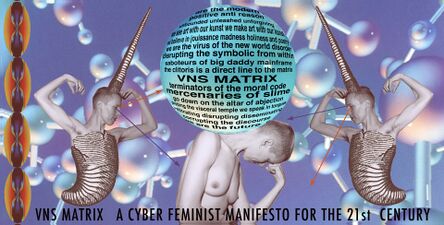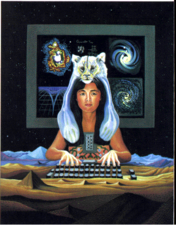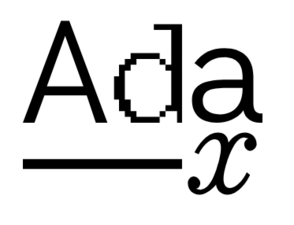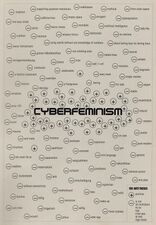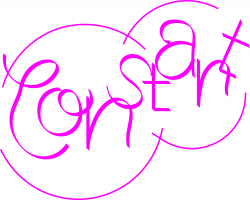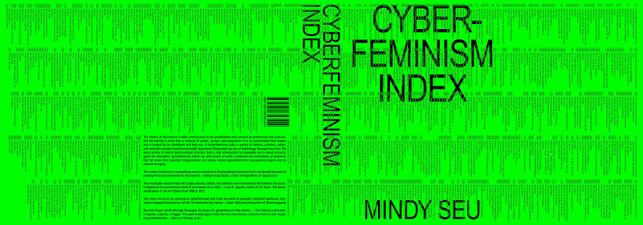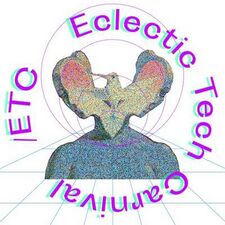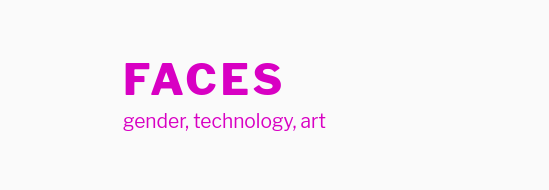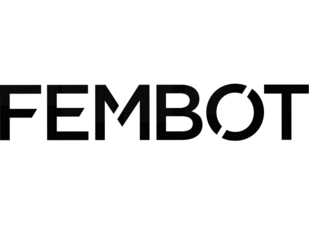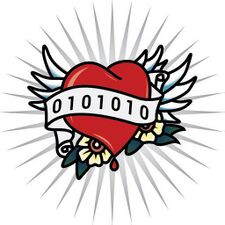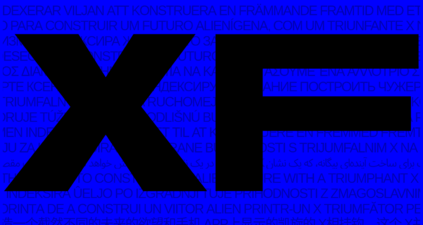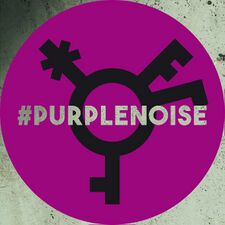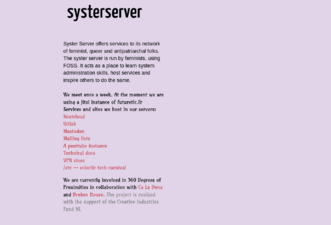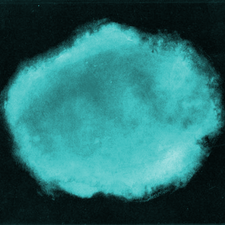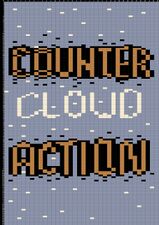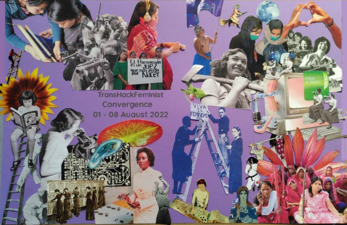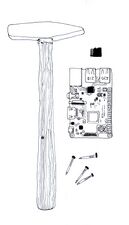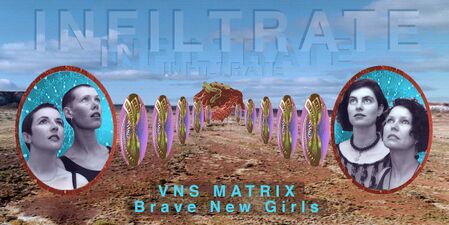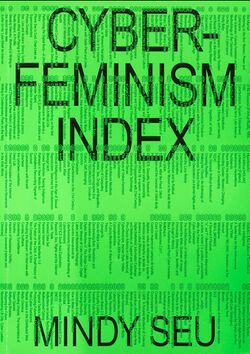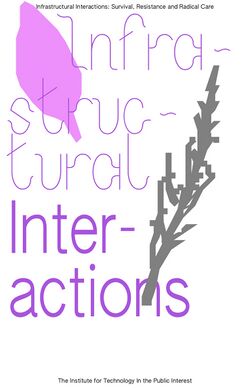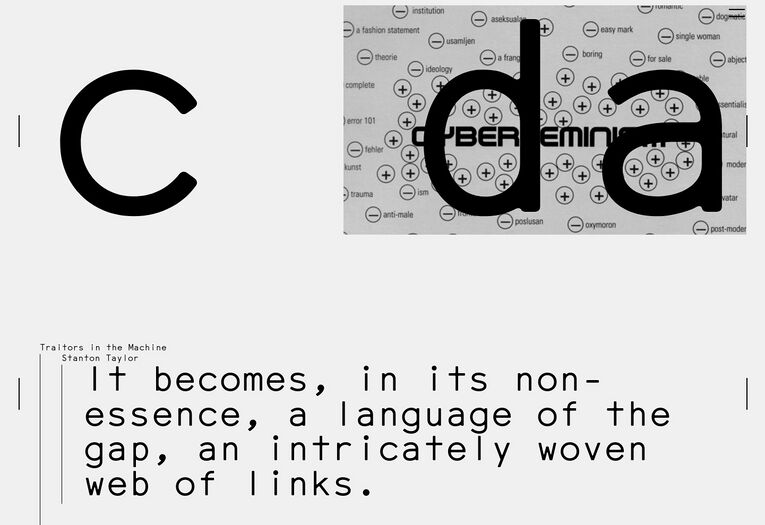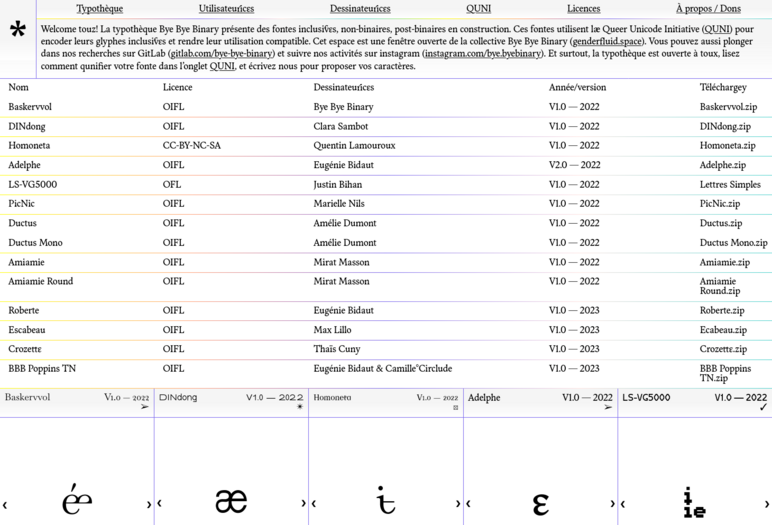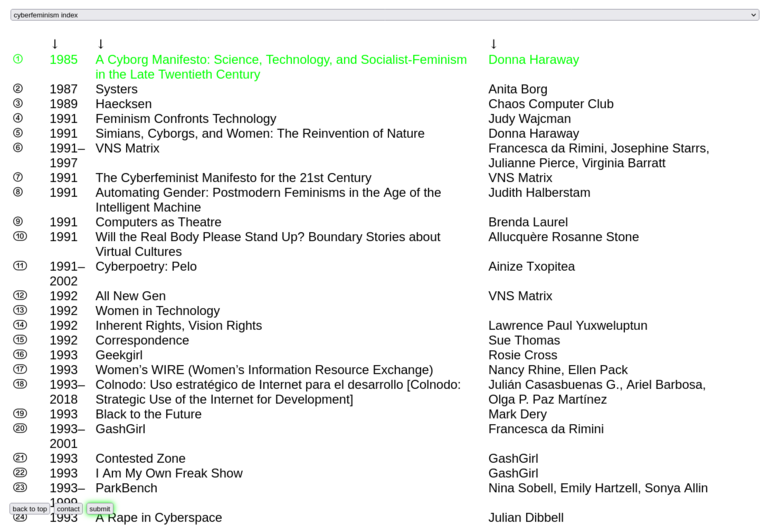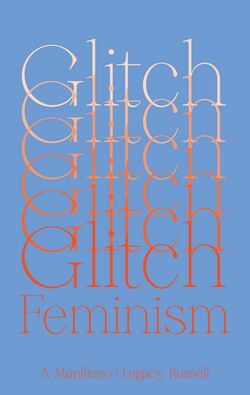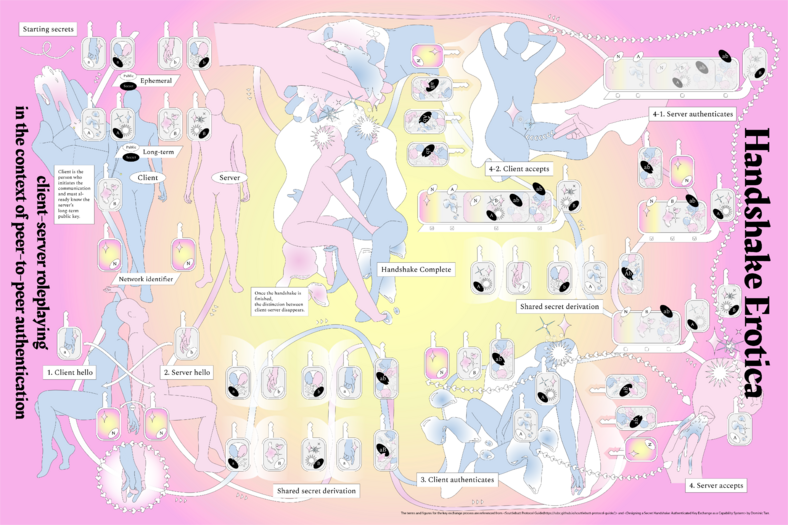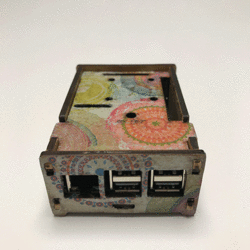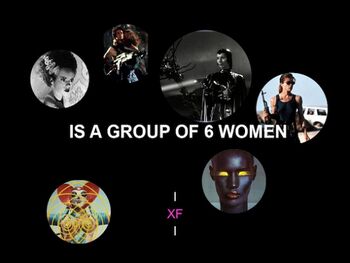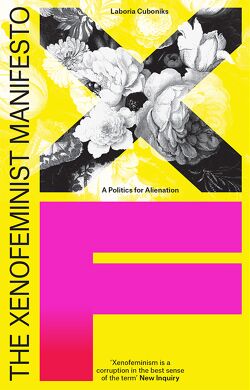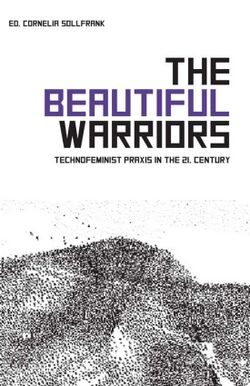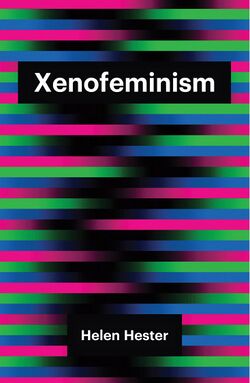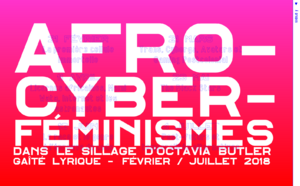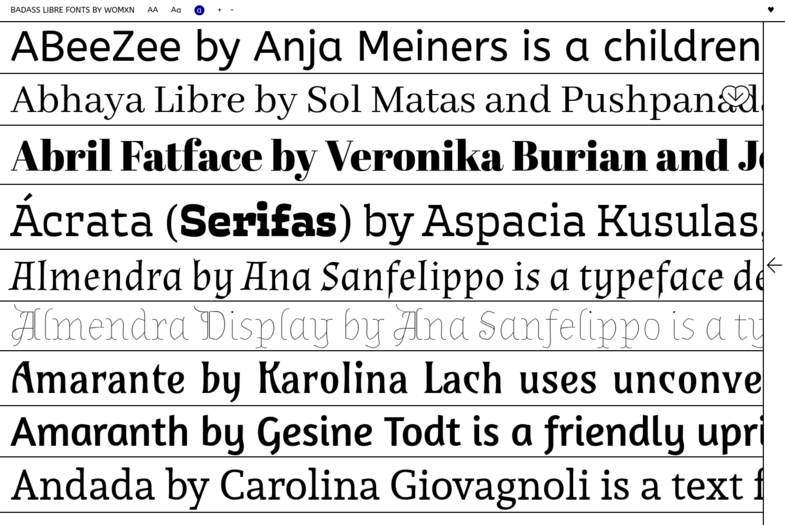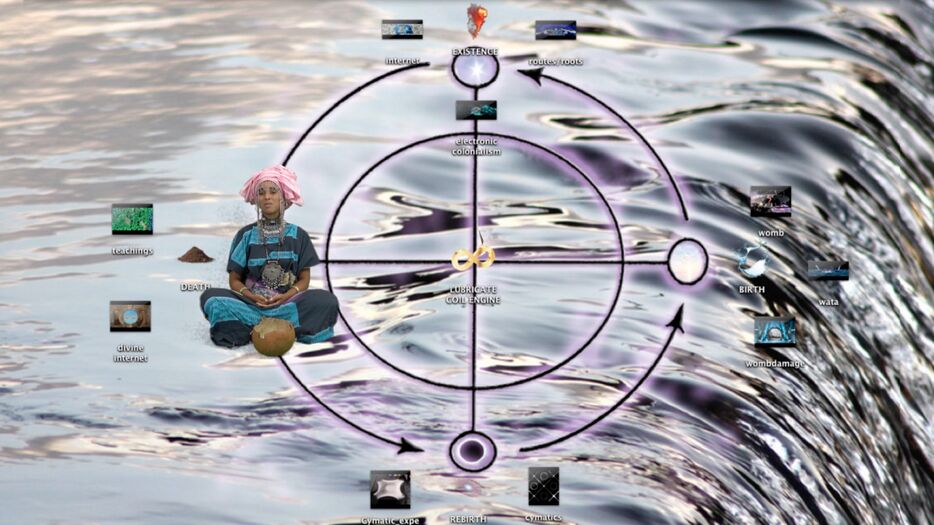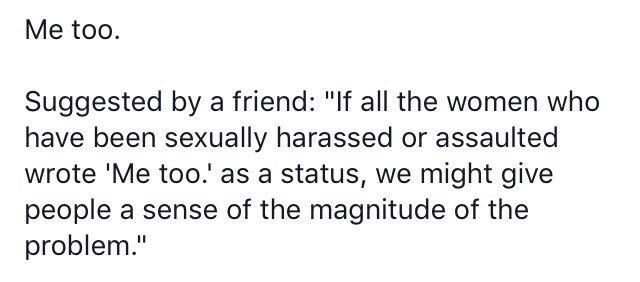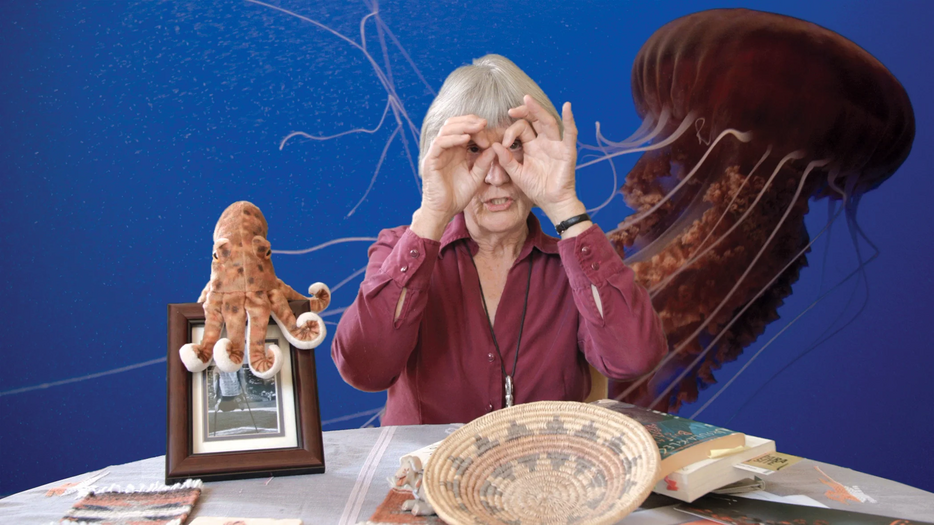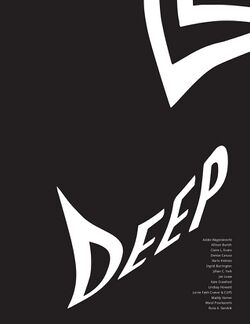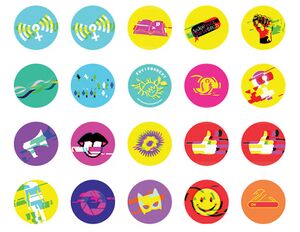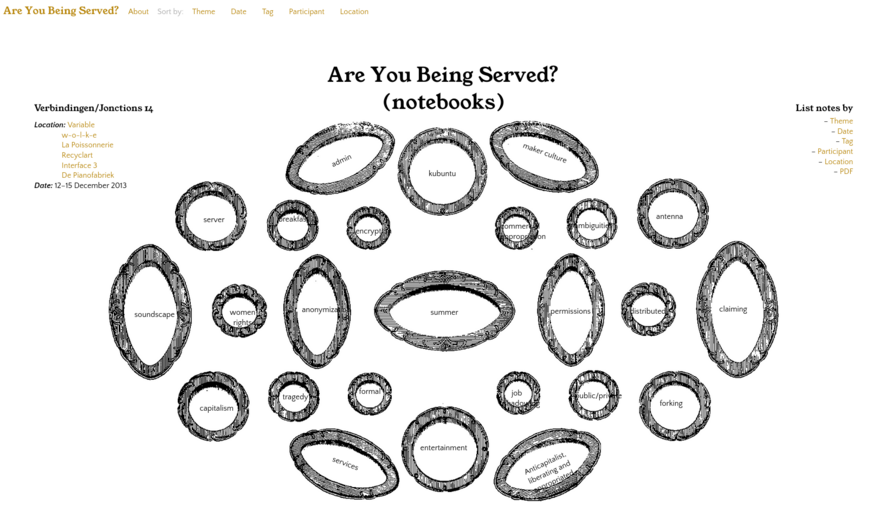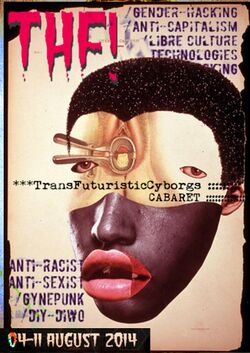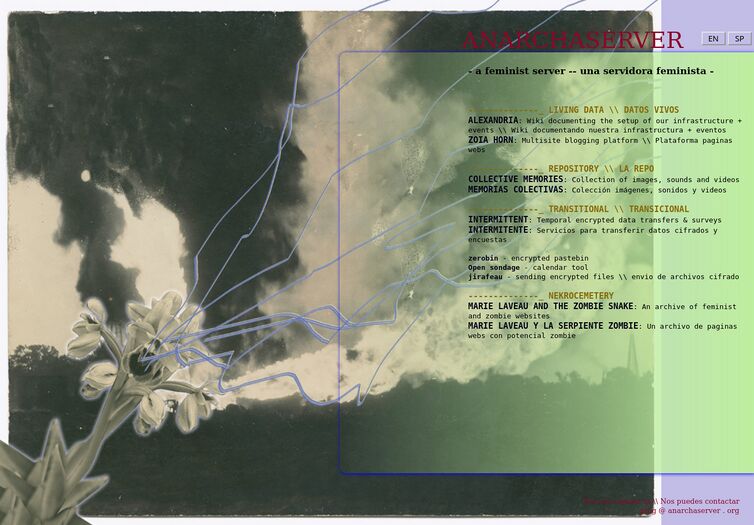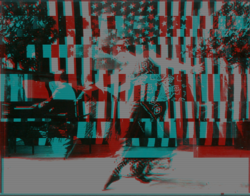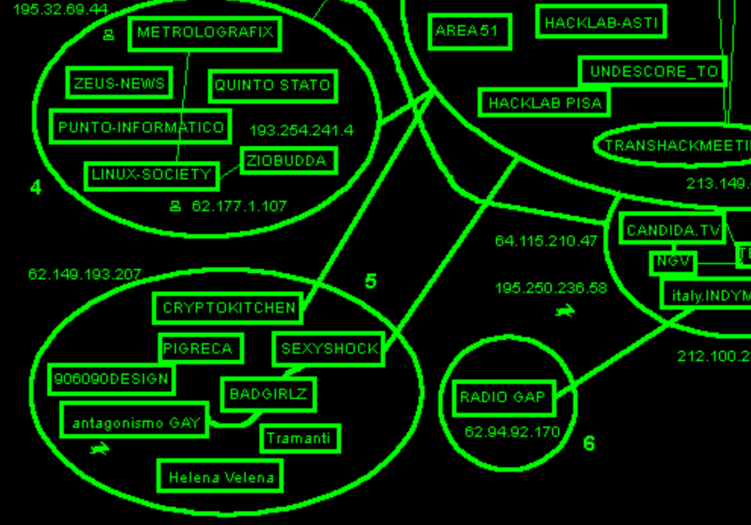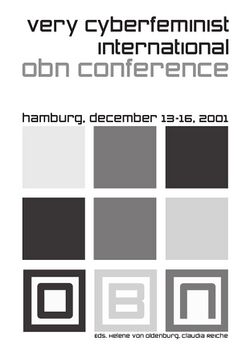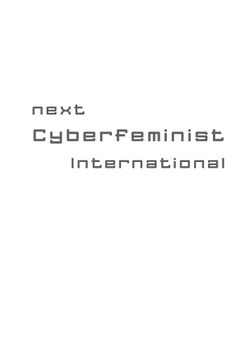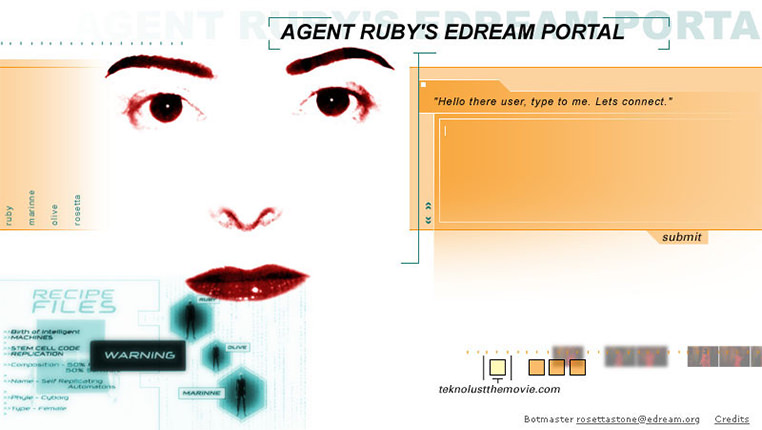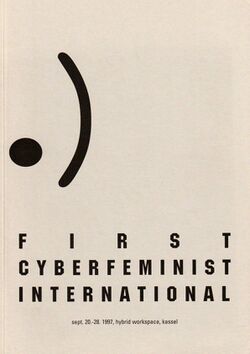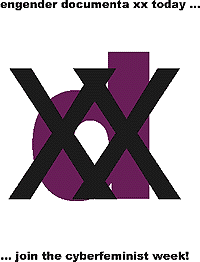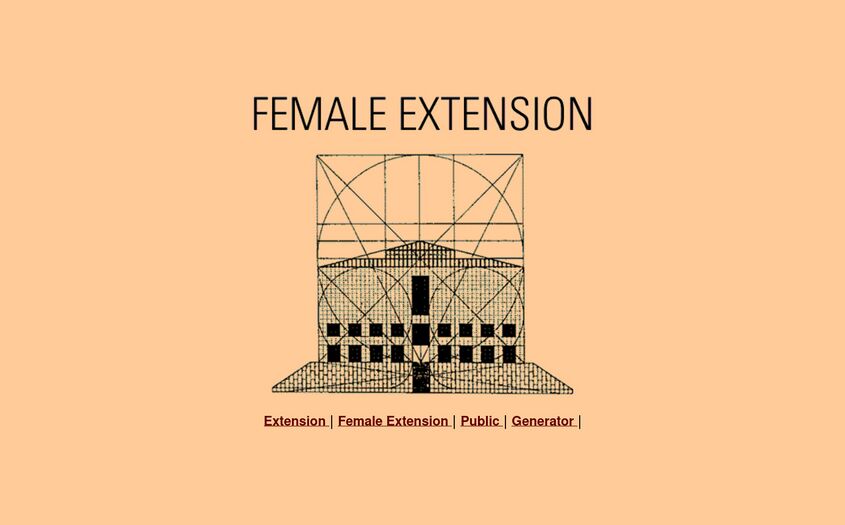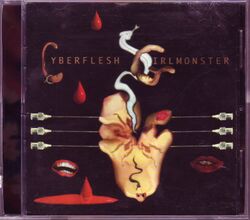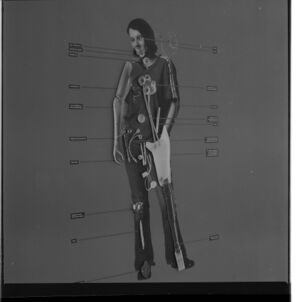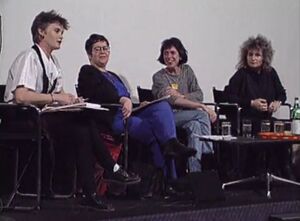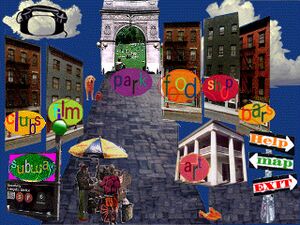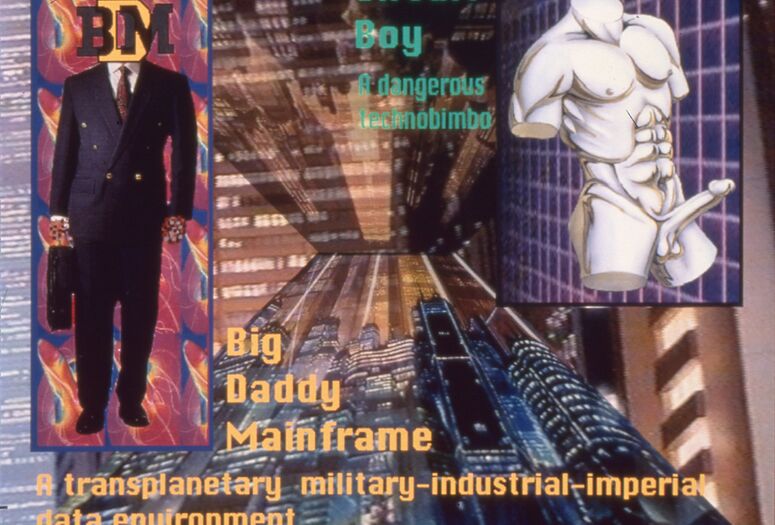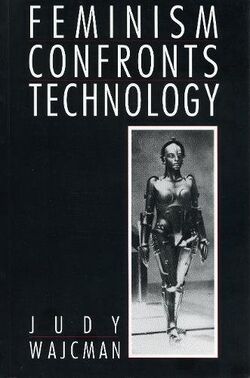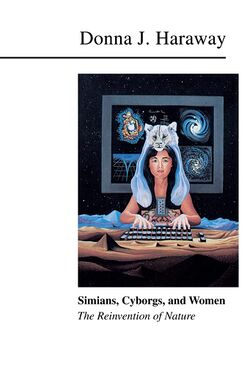Cyberfeminism
(Redirected from Xenofeminism)
Jump to navigation
Jump to search
Contents
2025[edit]
- Feminist Servers, assembly at the 39th Chaos Communications Congress, Hamburg, 27-30 December 2025. Toot.
- Technofeministische (Re)Produktionsweisen, workshop, Kunstgeschichtliches Institut, Ruhr-Universität Bochum, 11-12 December 2025.
- Nothing comes without its world!, exhibition, Deutscher Künstlerbund Berlin, 13 September-21 November 2025. On the occasion of the presentation of the HAP Grieshaber Prize 2025, Cornelia Sollfrank takes the invitation to a solo exhibition as an opportunity not only to present a selection of her own works, but also to provide insight into the “world” that this work has helped to create: a long-standing relational network of Berlin-based and international agents. Accompanying event: Critical knowledge and communication infrastructure as aesthetic practice: Workshop for the tech*feminist art scene in Berlin, November 19, 2025, 10:30-18h. Toot.
- Anti-Daedalus: A Manifesto Against the Cybernetic Hypothesis, by Lisbeth Salander and Maia Halassar, 1 May 2025, 42 pp. An analysis and critique of 80 years of global US hegemony based upon a cybernetic war machine, paired with a novel cyberfeminist reinterpretation of the Daedalus myth.
- Living with Two Brains. Women in AI and New Media Art, symposium, Mori Art Museum, Tokyo, 15-16 February 2025. Organised by the Mori Art Museum and AWARE: Archives of Women Artists, Research and Exhibitions. Video documentation. [1]
2024[edit]
- Radical Software: Women, Art & Computing, 1960-1991, ed. Michelle Cotton, Luxembourg: Mudam Luxembourg/Musée d'art moderne Grand-Duc Jean, Vienna: Kunsthalle Wien, and Cologne: Buchhandlung Walther und Franz König, October 2024, 223 pp. With three new essays by Tina Rivers Ryan, Margit Rosen and Michelle Cotton. "The publication accompanies the exhibition surveying the history of digital art from a feminist perspective, focusing on women who worked with computers as a tool or subject and artists that worked in an inherently computational way. It also features a richly illustrated timeline covering the period between 1613 and 1991 and includes twenty-seven new interviews with artists." Publisher, [2]. Exhibitions: MUDAM Luxembourg, 20 September-2 February 2025; Kunsthalle Wien, 28 February-25 May 2025, Artists & works, [3]. Exh. booklet. Symposium (28 February 2025). Exh. reviews: Emily McDermott (ArtReview), Kathrin Heinrich (Frieze), Marilena Borriello (Burlington), Will Jennings (Wallpaper), Artishock, Marika Kupková (Artalk).
- Key Operators: Weaving and Coding as Languages of Feminist Historiography, exhibition and events, Kunstverein München, Munich, 7 September-24 November 2024. Curator: Gloria Hasnay, with Maurin Dietrich. Exh. booklet. Web publication.
- Erin Dickey, "Bad Information": Networks, Knowledges, and Feminist Art in the 1980s, Chapel Hill, NC: University of North Carolina, August 2024, 405 pp. PhD thesis. In an era of rapid technological change in the 1980s, the work of Judy Malloy, Nancy Paterson, and Karen O’Rourke probed the political, aesthetic, and technological processes underlying the “information age,” scrutinizing not just what but how we know.
- TECHNOFEM: Cyberfeminism in Bulgaria, performance and discussion, Toplocentrala, Sofia, 9 July 2024. Initiated by ULTRAFUTURO, Eastern Balkans Institute for Art and Architecture and gallery Gallery.
- "None of this experiment is evident. A conversation on Irational server", titipi.org, July 2024. A conversation between Kate Rich (Irational) and Femke Snelting (TITiPI).
- Katrin Mayer, a.o., #c0da comptoir #fanny carolsruh, exhibition, Badischer Kunstverein, Karlsruhe, 21 June-1 September 2024. [5]
- Eclectic Tech Carnival, Berlin, 5-9 June 2024. Hosted by Heart of Code Hackspace and New Yorck.
- This Feminist internet Life. FTX Stories of Collaboration, Creativity and Care, podcast series, Association for Progressive Communications (APC), 7 May 2024. "In this podcast, we invite you on a journey to explore stories by the voices of over 15 feminist tech activists from the global south! You will start by listening how since the dial-up internet era the paths towards imagining and creating a feminist internet started, leading to building more inclusive, safe and queer feminist movements in the digital age. While having at the core of the process fun and care for people, the earth and our feminist activism." [6]
- Transnational Anti-colonial Trans★Feminist Counter Cloud Action Day, multiple locations, 8 March 2024. "We call for a Counter Cloud Action Day –– a permanent ceasefire in Palestine and for an end to the genocide facilitated by the Israeli government’s military-technological complex." Convened by Varia, The Institute for Technology in the Public Interest, Constant, Institute of Diagram Studies, The Digital Discomfort Working Group, Hackers & Designers, ooooo, Tecnosandías, Hamaca, in-grid, NeON, Cartography of Darkness + all those who can’t sign because of state sanctioned censorship. Actions. Mastodon. List. (multiple languages)
- Gözde Ersöz, Gökmen Kantar, Meltem İnce Yenilmez (eds.), Reconstructing Feminism Through Cyberfeminism, Leiden: Brill (Studies in Critical Social Sciences), January 2024. "Investigates how digitalization has affected entrepreneurship, labour markets, financial markets, and women's empowerment, underlining the opportunity it presents for a more inclusive and equal society. Publisher.
2023[edit]
- How to Cypher Sex: A Manual for Collective Digital Self-Defense Guides, December 2023, 64 pp, PDF. Manual for collectively writing localized digital self-defense guides that advocates self-empowerment through the use of online identity management and other digital self-defense strategies.
- Shusha Niederberger, Anthonie de Groot, "«Jetzt haben wir die Cloud und alles ist magic magic»", splatz.space, November 2023. Interview. (German)
- Firuzeh Shokooh Valle, In Defense of Solidarity and Pleasure: Feminist Technopolitics from the Global South, Stanford University Press, September 2023, 260 pp. Publisher.
- Cameron Hurst, "VNS Matrix-Pilled: Three Propositions for Revisiting 1990s Cyberfeminist Art Now", Australian and New Zealand Journal of Art 23:1, August 2023, pp 43-60. DOI. [7]
- Vanice Devenich, "Technofeministische Praxis der Zukunftsgestaltung", Transformazine, June 2023. Lecture. (German)
- Stefanie Wuschitz, "A Diffractive Approach to Feminist Media Art", in Proceedings of the 2nd International Conference on Intermedia Arts & Creative Technology (CREATIVEARTS) 2021, May 2023. "Intervening into the biosphere as a feminist artist, maker or hacker means applying ethics of care and convivality for a sustainable co-existance, being concerned and attentive to changes occurring in the process. With this paper I attempt to analyse creative arts in a diffractive approach, thinking Feminisms through Art and Technology."
- Marloes de Valk, "rosa's Ecofeminist Dictionary", Solar Protocol, April 2023. Toot.
- "Tecnopolíticas del 8M. Cuentos y otras narraciones sonoras de tres tecnólogas disidentes ciberfeministas", El Salto Radio, March 2023, 20 min. Conversation with Spideralex (Donestech and Femblog), Revu (neighbour of the cyberworld) and Charo Marcos (Asociación OtroTiempo). (Spanish)
- A Traversal Network of Feminist Servers, March 2023, 189 pp, PDF. A publication from the ATNOFS project, collectively made with Wendy Van Wynsberghe, Vlad Dobrițoiu, Teo Săvoiu, Spideralex, Sergiu Nisioi, Roel Roscam Abbing, Reni Hofmüller, ooooo, Nina Botthof, Martino Morandi, Marloes de Valk, Mara Karagianni, Manetta Berends, Lídia Pereira, Julia Bande, Femke Snelting, elodie Mugrefya, Donatella Portoghese, Danae Tapia, Cristina Cochior, Azahara Cerezo, Aymeric Mansoux, Artemis Gryllaki, Aggeliki Diakrousi, Anca Bucur, amy pickles, Alice Strete, Alex Ștefănescu. Toot. [8]
- Hosting with, eds. Manetta Berends, Angeliki Diakrousi, and Artemis Gryllaki, Rotterdam: Varia, March 2023, [16] pp, PDF. Zine; a conversation around collective hosting practices in the context of art servers, community servers and feminist servers (AMRO, Linz, June 2022). [9] [10]
- On 8th of March 2023, we call for a Counter Cloud Action Day.
- On this day, we will try to withhold from using, feeding, or caring for The Big Tech Cloud. The strike calls for a hyperscaledown of extractive digital services, and for an abundance of collective organising. We join the long historical tail of international feminist strikes, because we understand this fight to be about labour, care, anti-racism, queer life and trans★feminist techno-politics.
- Too many aspects of life depend on The Cloud. The expansionist, extractivist and financialized modes of Big Tech turn all lively and creative processes processes into profit. This deeply affects how we organise, and care for resources. Many public institutions such as hospitals, universities, archives and schools have moved to rented software-as-a-service for their core operations. The interests of Big Tech condition how we teach, make accessibility, learn, know, organise, work, love, sleep, communicate, administrate, care, and remember.
- Especially now our dependency on Big Tech Cloud seems intractable, it is time to reclaim space for renegotiating what might be possible. We want to imagine different infrastructures for collective life with and without computation. By calling for cloud resistance, we want to center slow trans★feminist, anti-racist and anti-imperial server practices. We want local digital storage, self-hosted videocalls, and collaborative server hosting. We want antifa-infras, low-energy graphics and queer circuits. We want accessible development, sustainable tech-maintainance, and feral supply chains. We want the end of work conditioned by Big Tech, and ultimately, the end of work. We want systemic, joyful, techno-political change. 🖇
- International Trans★Feminist Digital Depletion Strike, multiple locations, 8 March 2023. Convened by Anarchaserver, Constant, esc, Varia, Systerserver, TITiPI, a.o. Events. Mastodon feed [11]. Mastodon account. Images. List. [12] [13] (multiple languages)
- Shusha Niederberger, "Minor User: Subjectivity of Small Technology", A Peer-reviewed Newspaper 12(1): "Toward a Minor Tech", Aarhus: Digital Aesthetics Research Center, Aarhus University, February 2023, p 4; rev. as "Calling the User Interpellation and Narration of User Subjectivity in Mastodon and Trans*Feminist Servers", APRJA 12(1): "Minor Tech", September 2023, pp 177-191. Toot. Publisher, Publisher.
- Mara Karagianni, ooooo, Nate Wessalowski, vo ezn, "Feminists Federating", A Peer-reviewed Newspaper 12(1): "Toward a Minor Tech", Aarhus: Digital Aesthetics Research Center, Aarhus University, February 2023, p 4; rev. as nate wessalowski, Mara Karagianni, "From Feminist Servers to Feminist Federation", APRJA 12(1): "Minor Tech", September 2023, pp 192-208. Publisher. Publisher.
- Mathilde Saliou, Technoféminisme: comment le numérique aggrave les inégalités, Paris: Grasset, February 2023, 304 pp. Publisher. (French)
2022[edit]
- Prospections: "Digital Discomfort", eds. Cell for Digital Discomfort (Cristina Cochior, Karl Moubarak, and Jara Rocha), Utrecht: BAK, December 2022–. "With “Digital Discomfort,” CfDD continue their collective study of cultures and practices of computation and invites other reflections, grammars, and actions that contribute to a plurality of inter-dependent, anti-colonial, trans*feminist, anti-ableist, and environmentally just worldmaking practices of computation. These contributions grapple with the complex distribution of agencies and stakeholders, even if it's technically impossible to make the apparatus just “stop.”"
- Mindy Seu (ed.), Cyberfeminism Index, forew. Julianne Pierce (VNS Matrix), afterw. Legacy Russell, Los Angeles: Inventory Press, December 2022, 608 pp, MOV. "Includes more than 700 short entries of radical techno-critical activism in a variety of media, including excerpts from academic articles and scholarly texts; descriptions of hackerspaces, digital rights activist groups, and bio-hacktivism; and depictions of feminist net art and new media art." Digital companion. Publisher. Distributor. Book launch (Rhizome, video). Book tour. CF Catalog project. Tweet, [14]. Conversations: Salome Asega (Broadcast, Pioneer Works), Leslie Atzmon (Dialectic), Rea McNamara (Hyperallergic), Liara Roux (Dazed). Reviews: Jenny Wu (Brooklyn Rail), Alice Truc (Critique d'art).
- Cyberfeminism Index Book Tour, hosted by Mindy Seu with others, multiple locations, October 2022-March 2024.
- "A Fair New Idea — A feminist video streaming platform", Zoia Horn, November 2022.
- Counter Cloud Action Plan, Brussels: The Institute for Technology In the Public Interest, November 2022, 35 pp, PDF, PDF. Toot. [15]
- Infrastructural Interactions: Survival, Resistance and Radical Care, eds. Helen V Pritchard, and Femke Snelting, Brussels: The Institute for Technology In the Public Interest, November 2022, 83 pp, PDF, PDF. "Computational infrastructures generate harms and damage beyond ethical issues of privacy, ownership and confidentiality. They displace agencies, funds and knowledge into apps and services and thereby slowly but surely contribute to the depletion of resources for public life. While data- infrastructures capture public data-streams, they also capture imagination for what a public is, and what is in its interest. We urgently need other imaginations for how we interface with infrastructures, beyond delivering a “solution” to a “need” (or the promise they can fulfill a future need). The workshops, documentation and structures in this workbook are a small contribution to making this complex paradigm shift together." With contributions by TITiPI, Varia (Manetta Berends, Cristina Cochior), Clareese Hill, Other Weapons, Gwen Barnard, Naomi Alizah Cohen, Yasmine Boudiaf and Infrastructural Manouevres. Workbook wiki. Toot.
- c0da, November 2022–. "A research project and publishing platform conceived by artist Katrin Mayer that deals with feminist modes of coding and writing. Developed in close collaboration with graphic designer and programmer Anna Cairns, it interweaves the herstory of the internet with herstories of writing." Launch. (German)/(English)
- dtgl fmnsm interFACE Digital Please Center, programme, part of Spy on Me Festival #4, HAU4, Dresden, 22-23 September 2022. Concept: dgtl fmnsm Kollektiv (allapopp, Sarah Ama Duah, Ulla Heinrich, Philisha Kraatz, Echo Can Luo, Teresa Schönherr). Artists: Iyo Bisseck, Petja Ivanova, Rain Rose, Kaya Zakrzewska, Echo Can Luo, Sarah Ama Duah, Lisa Kaschubat, Andara Shastika, allapopp, Rain Rose, Raras Umaratih, Kaya Zakrzewska. Recap Video (39 min).
- feminist ninja, "Actualizando el feminismo interseccional a la clase hacker" [Updating intersectional feminism to the hacker class], video, 6 August 2022. Parte 1/3: La evolucion de lxs cyborgs feministas, 15 min. Parte 2/3: Economia politica del Hack. Vectorialismo & hackers como clase, 23 min, Parte 3/3: El feminismo hacker en la intersection, 12 min. (Spanish) with (English)/(French)/(Italian) subs. Event.
- TransHackFeminist Convergence 2022: Feminist Infrastructure, Calafou, Barcelona, 1-8 August 2022. Zine. [16]
- mur.at Netzrauschen #014: systerserver.net, Radio Helsinki, June 2022, 60 min. Podcast interview. [17] [18]
- Trans★feminist servers...
- ... exist in the wishful space-time between the no longer and the not yet.
- ... are run for and by collectives that care for them to make them exist.
- ... will towards non-extractive relationships, but in the meantime, are accountable for the ones they are complicit with.
- ... wish many understandings of collectivities into being, learning from their differences: we, us, them, us + them, us - them, me + you, me + them, them - me, ...
- ... radically question the conditions for serving and service; they experiment with changing client-server, user-device and guest-host-ghost relations where they can. Who is serving whom? Who is serving what? What is serving whom? Are they being served?
- ... do not serve every body; they continuously re-negotiate what counts as accessible. They respond to the fluctuating abilities, embodied knowledges and genealogies of their care-takers and users.
- ... reject generalized definitions of efficiency, efficacy, ease-of-use, transparency, scalability, accessibility, inclusion, optimization and immediacy because they are often traps.
- ... are sometimes not available. They will interrupt the continuity of colonial and patriarchal servitude, in consultation with ancestral forces of construction and destruction across times.
- ... cultivate more-than-human love for the swamp of inter-dependencies they are with.
- ... operate with both technology and humanness as entangled praxes in the making.
- ... are committed to an intersectional analysis of the conditions for and the operations of computation.
- ... carefully scale up or down, and alternate processing speeds whenever conditions require.
- ... consider autonomy, sovereignty and the many forms of governance that they can commit to, as always partial and mutually constitutive, in constant negotiation of the conditions of possibility.
- ... are a situated techno-ecology. They are aware of the materialities of software, hardware and of their grounds.
- ... want networks to be read-able and write-able.
- ... know that networking is not always comfortable; it includes the modes of existence that are flourishing in-between promiscuous links and nodes of power.
- ... share their processes, tools, sources, habits, patterns and memories and place them in circulation, while recognizing that they do not always need to be understood.
- ... take the risk of exposing their insecurities and do not confuse security with safety. They learn from sex-positive cultures of consent, trauma-informed kink, BDSM, anarchist relationalities and polyamory; transformative, restorative and healing justice; non-violent conflict resolution and community accountability; only-partial reparations of damage; pleasure-affirming harm reduction; queer kinship and queer care; pre-figurative community building and safeword-friendly agreements. They draw boundaries where needed and create safer space-times if possible.
- ... strive for seamfulness, and response-able relationality. They practice digital discomfort and take walks on the rough side. 🖇
- "Trans*feminist servers...", June 2022–; rev. as "A Wishlist for Trans*feminist Servers", Prospections: "Digital Discomfort", eds. Cell for Digital Discomfort, Utrecht: BAK, December 2022. Extends A Feminist Server Manifesto 0.01. Circulated at the 2022 edition of AMRO.
- "Trans*feministické servery...", 3/4, Bratislava, April 2023. (Slovak)
- Cornelia Sollfrank, "obn_a – A Situated Archive of the Old Boys Network", in Networks of Care: Politiken des (Er)haltens und (Ent)sorgens, eds. Anna Schäffler, Friederike Schäfer, and Nanne Buurman, Berlin: neue Gesellschaft für bildende Kunst (nGbK), May 2022, pp 72-80. (English)
- "obn_a – ein situiertes Archiv des Old Boys Network", in Networks of Care: Politiken des (Er)haltens und (Ent)sorgens, eds. Anna Schäffler, Friederike Schäfer, and Nanne Buurman, Berlin: neue Gesellschaft für bildende Kunst (nGbK), May 2022, pp 157-166. (German)
- Infrables, Brussels: The Institute for Technology in the Public Interest, May 2022, 30 pp, PDF, PDF. "Infrables make negative use-cases and un-fixing bug reports as a solidary praxis. They are articulations of what extractive digital infrastructures are, and what they are doing. What infrables can we tell to take-down Big Tech narratives and undo their violences? Generated through narrative and extra-narrative accounts, infrables identify oppressive infrastructures or tools, but they also make space for other technological attitudes."
- Stefanie Wuschitz, "A feminist hacklab's resilience towards anti-democratic forces", Feminist Theory 23:2, March 2022. DOI.
- Nancy Mauro-Flude, Yoko Akama, "A Feminist Server Stack: Co-designing Feminist Web Servers to Reimagine Internet Futures", CoDesign 18(1): "Designing for Reimagined Communities", eds. Lynn-Sayers McHattie and Brian Dixon, March 2022, pp 48-62. DOI.
- A Traversal Network of Feminist Servers (ATNOFS), series of events in six chapters, Varia, Rotterdam; HYPHA, Bucharest; LURK, online; ESC, Graz; Feminist Hack Meetings, Athens; Constant, Brussels, 26 March-2 October 2022. ATNOFS website. Radio broadcast.
- Mara Karagianni, Read the Feminist Manual, February 2022, 18 pp, PDF. Zine.
2021[edit]
- Malin Kuht, En-Countering Cyberfeminism, 2021, 33 min; short version, 2022, 7 min. Artist film. "Tells a possible story about the First Cyberfeminist International, which took place in 1997. Within this essayistic documentary, questions about emancipatory approaches to technology and its histories are raised." [20]
- Rosi Braidotti, "Cyberfeminists and Other Bad Girls", in Io dico Io – I say I: Female Artists and Self-Representation, eds. La Galleria Nazionale, Cecilia Canziani, Lara Conte, and Paola Ugolini, Milan: Silvana, 2021. Publisher. (Italian)/(English)
- Servidoras: como colocar seu site no ar [Servers: how to get your site online], São Paulo: Marialab, October 2021, 221 pp. "The lack of consolidated laws on digital privacy requires each individual to be prepared to face the new situations and invasions of privacy arising from this new vision of privacy intertwined with the emergence of new information technologies. To address this issue, in 2017 we started a project at MariaLab on Feminist Infrastructures, dedicated to disseminating and encouraging the exchange of knowledge about servers, autonomous networks, hacking and feminist technology by women's groups." Publisher. (Brazilian Portuguese)
- Nancy Mauro-Flude, "Writing the Feminist Internet: A Chthonian Feminist Internet Theory for the Twenty First Century", Continuum: Journal of Media & Cultural Studies 35(5): "The Dark Social: Online Practices of Resistance, Motility and Power", eds. Toija Cinque, Alexia Maddox, and Robert W. Gehl, October 2021, pp 788-804. DOI.
- Magdalena Götz, "Feminist Dissent: Taking Sid/tes in Making ‘Purple Noise’", in Taking Sides: Theories, Practices, and Cultures of Participation in Dissent, eds. Elke Bippus, Anne Ganzert, and Isabell Otto, Bielefeld: transcript, October 2021, pp 65-77.
- Nathalia Campreguer França, Dorothé Smit, Stefanie Wuschitz, Verena Fuchsberger, "The Women* Who Made It: Experiences from Being a Woman* at a Maker Festival", Sustainability 13:16, August 2021, 24 pp.
- voidLab 2015-2017, eds. Echo Theohar and Xin Xin, July 2021, 172 pp, IA. "Active from 2015 to 2017, voidLab was an intersectional feminist collective for women, non-binary, gender nonconforming, trans and queer people to express individual identities through art and technology. Projects, actions, and reflections accumulated from this temporary community now live in an archive available in PDF and printed format."
- Cornelia Sollfrank, "The Art of Getting Organized. A Different Approach to Old Boys Network", in Computer Grrrls, eds. Inke Arns and Marie Lechner, Dortmund: Kettler, and HMKV, May 2021, pp 36-41; repr., OnCurating 52: "Instituting Feminism", eds. Helena Reckitt and Dorothee Richter, 2021, pp 120-125. (English)
- "Die Kunst, sich zu organisieren - Old Boys Network - aus einer anderen Perspektive", in Computer Grrrls, eds. Inke Arns and Marie Lechner, Dortmund: Kettler, and HMKV, May 2021, pp 42-45. (German)
- Inke Arns, Marie Lechner (eds.), Computer Grrrls, Dortmund: Kettler, and HMKV, May 2021, 191 pp. "Brings together 23 international artistic positions that negotiate the complex relationship between gender and technology in past and present. The book deals with the link between women and technology from the first human computers to the current revival of technofeminist movements"
- Feminist Review 127(1): "Sonic Cyberfeminisms", eds. Annie Goh, Marie Thompson, Ioana Szeman, Irene Gedalof, and Sadie Wearing, March 2021.
- Jara Rocha, A Catalogue of Formats for Digital Discomfort, eds. Seda Gürses and Jara Rocha, February 2021, PDF. [21]
- Ines Kleesattel, "Situated Aesthetics for Relational Critique. On Messy Entanglements from Maintenance Art to Feminist Server Art", in Aesthetics of the Commons, eds. Cornelia Sollfrank, Felix Stalder and Shusha Niederberger, Zurich: diaphanes, January 2021, pp 181-197.
- Bye Bye Binary typothèque, January 2021–. "Presents inclusive, non-binary and post-binary fonts under construction. These fonts use the Queer Unicode Initiative (QUNI) to encode their inclusive glyphs and make their use compatible." Git. Launch 2.0 (2024).
2020[edit]
- Charlotte Eifler, Feminism is a Browser, video, 2020, 3 min. "Yeva is a fictional cyber entity and bored in the vastness of their webspace. They were created in the 90s by the first generation of FACES, an international network of media pioneers. These women have been communicating for more than 20 years through an email list to support each other in the tech world. They are hackers, net activists, media artists, cyberpunks and web researchers. Yeva has access to the mail archive and raises many questions towards their so-called ‘mothers‘." Artist. Exhibition.
- Enredando territórios de cuidado: guia para aprendizado e construção de redes comunitárias [Enmeshing territories of care: a guide to learning and building community networks], São Paulo: Marialab, November 2020, 123 pp. "Community networks represent the possibility for a community to debate, decide and install its own network communication technology. The ways of achieving this are as diverse as the communities themselves and involve technical complexities, governance, sustainability and training, among others." Publisher. (Brazilian Portuguese)
- Diana McCarty, "be(coming) media— Technofeminist Pasts, Presents & Potentials", in Deserting from the Culture Wars, eds. Maria Hlavajova and Sven Lütticken, Utrecht: BAK, October 2020. [22]
- Mindy Seu (ed.), Cyberfeminism Index, October 2020–. Website. Spreadsheet. Interview with Mindy Seu (Cait McKinney). [23]
- Legacy Russell, Glitch Feminism: A Manifesto, London: Verso, September 2020, 176 pp. "Argues that we need to embrace the glitch in order to break down the binaries and limitations that define gender, race, sexuality. Reveals the many ways that the glitch performs and transforms: how it refuses, throws shade, ghosts, encrypt, mobilises and survives." Website.
- Glitch Feminismus: ein Manifest, trans. Ann Cotten, Leipzig: Merve, 2021, 168 pp. Publisher. (German)
- Feminismo Glitch: (un manifiesto), trans. Federico Fernández Gordiano, Barcelona: Holobionte, 2022, 172 pp. (Spanish)
- Glitch feminismus: manifest, trans. Jarmila Soukupová, Prague: Utopia Libri, 2023, 166 pp. Publisher. (Czech)
- Digital Power: Activism, Advocacy and the Influence of Women Online, online exhibition, ACM SIGGRAPH Digital Arts Community, August 2020–. "An exhibition that inspires, empowers, and supports women, Digital Power: Activism, Advocacy and the Influence of Women Online is a juried selection of visionary digital content providers: artists, storytellers, researchers, performers, historians, designers, gamers, film/video makers, communicators and writers." Organised by Kathy Rae Huffman. Curator's statement. [24]
- Malin Kuht, Nora Sternfeld (eds.), Cyberfeminism and Futures from Within, Kassel: Kunsthochschule Kassel, Summer 2020. "As part of the Hybrid Work Space at documenta X, the Old Boys Network formulated a manifesto with 100 antitheses on what cyberfeminism is not. When we read the paper of the collective/artistic project today, much of it seems current, some of it clearer and bolder than today, some naïve, some outdated and some more unattainable than ever. Based on this concrete history, we held a seminar to explore collective, feminist forms of action and technofeminist positions in the digital/analogue space of the present." Seminar. (German)
- Artemis Gryllaki, et al., Syster Papyri Magicae, Rotterdam: Piet Zwart Institute, June 2020. Wiki. Thesis.
- Luisa Cruz Lobato, Cristiana Gonzalez, "Embodying the Web, Recoding Gender: How feminists are shaping progressive politics in Latin America", First Monday 25:5, 4 May 2020. "We engage with the idea that technology intervenes on women’s’ bodies to analyze how digital activism is deeply connected to corporeality, looking at the Brazilian #EleNão campaign on Facebook to emphasize how the embodiment of feminist struggles in commercial platforms unveils deeply embodied misogynistic dispositions in social media, and to latin-american feminist infrastructures as challenging such dispositions. We argue that transgressing gender norms involves both engaging with social networks and creating alternative forms of coding women’s bodies, and that, beyond the dichotomy of enchantment/disenchantment with contemporary Internet politics, it might be useful to simply stay with the trouble, embrace and recognize the complexities of the many possible Web activisms experienced in Latin America."
- "Feminist Infrastructure", Anarchaserver, March 2020–. Resources, manuals, principles. (multiple languages)
- WPCC Editorial Board, "‘Intersectionality Went Viral’: Toxic Platforms, Distinctive Black Cyberfeminism and Fighting Misogynoir - An Interview with Kishonna Gray", Westminster Papers in Communication and Culture 15:1, March 2020, pp 68-73.
- dgtl fmnsm Hot Mess programme, part of Spy on Me #2 Festival, online, 20-27 March 2020. Artists/participants: Alla Popp, Shawné Michaelain Holloway, die Blaue Distanz (Anna Erdmann & Franziska Goralski), Tarren Johnson & Joel Cocks, Tiara Roxanne, Maque Pereyras, Biitsi, Anna Zett, American Artist, Nicole Killian, Xene Sky, Jamila Woods, Tabita Rezaire, Ash Baccus-Clark, Nakeema Stefflbauer, Nushin Yazdani, Tabitha Swansen, Tadleeh, Happy New Tears. Online residency (June-July 2020), [25].
2019[edit]
- Taehee Whang, Remembering LB City Cyber Lesbian Utopia, Ridgewood, NY: Hyperlink Press, 2019, [24] pp. Zine. "Introduces a virtual Korean lesbian utopia ‘LB City’ (2000-2003), a now inactive website that envisioned inclusive living for those who are excluded from Korean heteropatriarchal society. The current South Korean feminist discourse is in a powerful flux with the momentum of #MeToo, hyper femme online communities (여초사이트), Hidden Camera crime protest (혜화역시위), and Corset-free movement (탈코르셋 운동). Taehee Whang examines the cyber utopia project that dreamed of nurturing socially inclusive language and culture." Publisher. [26]
- Nahee Kim, Handshake Erotica, 2019. "Client-server roleplaying in the context of peer-to-peer authentification. Inspired by the secret handshake protocol of Scuttlebutt, < H͎A͎N͎D͎S͎H͎A͎K͎E͎ ͎E͎R͎O͎T͎I͎C͎A͎ > will introduce you to the detailed steps for getting aroused by client-server roleplaying. Come securely." [27]
- Fuxico: uma rede autônoma feminista [Fuxico: an autonomous feminist network], 2019. "Have you ever thought about having your own wireless network? Share content autonomously and securely, independent of the internet. Make your own Fuxico. It's a wireless community network, which can be your neighbourhood's communication network or the wi-fi network of your collective, community or territory. Everything shared through it is anonymous and, for your safety, will be off the internet." Collaboration between Vedetas, Coletiva Periféricas, Fundo ELAS, and AWID (Association for Women’s Rights in Development).
- Christina Dunbar-Hester, Hacking Diversity: The Politics of Inclusion in Open Technology Cultures, Princeton, NJ: Princeton University Press (Studies in Culture and Technology), December 2019, xi+271 pp. "A firsthand look at efforts to improve diversity in software and hackerspace communities. Demonstrates that while the preferred solutions of tech enthusiasts—their “hacks” of projects and cultures—can ameliorate some of the “bugs” within their own communities, these methods come up short for issues of unequal social and economic power. Distributing “diversity” in technical production is not equal to generating justice." Publisher.
- Caroline Bassett, Sarah Kember, Kate O'Riordan, Furious: Technological Feminism and Digital Futures, Pluto Press (Digital Barricades), November 2019. "A major work of feminist critical theory challenging the masculinist politics of digital media forms, practices and study." Publisher.
- GenderIT.org: "Intentional Infrastructures: Feminist Principles of the Internet and Community Networks", eds. Cynthia El Khoury and Kathleen Diga, Association for Progressive Communications (APC), November 2019. "What is the potential overlap between the energies and drive towards building a feminist internet and the growth of community networks in different parts of the world where communities build their own infrastructure and connectivity?"
- dgtl fmnsm #disconnect programme, part of Cynetart festival, Hellerau, Dresden, 23-24 November 2019. Artists/participants: Tarren Johnson, Omsk Social Club, Lyra Pramuk, soppa&bleck, Shawné Michaelain Holloway, Alla Popp, Toni Mosebach, Panasiagirl, Happy New Tears, Jan Vorisek, Katharina Klappheck, Nada Schroer, Francesca Schmidt, Loren Britton, Isabel Paehr, Martina Leeker, Arpana Aischa Berndt, Mine Wenzel, Die Blaue Distanz, Christina Harles, Georges Jacotey, Nicole Killian, Samuel H Goldstein, Jessie Darnell, X'ene Sky.
- Shusha Niederberger, "Feminist Server – Sichtbarkeit und Funktionalität. Digitale Infrastruktur als gemeinschaftliches Projekt", Springerin 4: "Digital Unconscious", Vienna, Autumn 2019. (German)
- "Feminist Server – Visibility and Functionality: Digital Infrastructure as a Common Project", Springerin 4: "Digital Unconscious", Vienna, Autumn 2019. [28] (English)
- Cornelia Sollfrank, "Forms of Ongoingness, Interview with Femke Snelting and spideralex", Creating Commons, October 2019, 42 min, PDF. Video, with transcript. Conducted in September 2018.
- Cómo montar una servidora feminista con una conexión casera [How to set up a feminist server with a home connection], Madriz: la_bekka, October 2019. Zine. [29] (Spanish)
- Jules Joanne Gleeson, "Breakthroughs & Bait: on Xenofeminism & Alienation", Mute, 19 October 2019.
- Eclectic Tech Carnival, Athens, 9-13 October 2019.
- Revisiting the Future: Technofeminism in the 21st Century, panel discussion, New Suns: A Feminist Literary Festival, Barbican, London, 5 October 2019. With Cornelia Sollfrank, Mindy Seu, Judy Wajcman, and Marie Thompson. Audio recording. Review: Chiara Di Leone (Furtherfield).
- Remedios Zafra, Teresa López-Pellisa (eds.), Ciberfeminismo. De VNS Matrix a Laboria Cuboniks, Barcelona: Holobionte, September 2019, 464 pp. TOC, Publisher. (Spanish)
- Remedios Zafra, "Ciberfeminismos: Tres décadas de alianza entre feminismo, tecnología y futuro", in Ciberfeminismo. De VNS Matrix a Laboria Cuboniks, eds. Remedios Zafra and Teresa López-Pellisa, Barcelona: Holobionte, 2019. (Spanish)
- "Three Decades of Art, Feminism and the Internet", trans. George Hutton, in Art, Images and Network Culture, ed. Juan Martín Prada, Aula Magna, 2021, pp 55-83.
- Remedios Zafra, "Ciberfeminismos: Tres décadas de alianza entre feminismo, tecnología y futuro", in Ciberfeminismo. De VNS Matrix a Laboria Cuboniks, eds. Remedios Zafra and Teresa López-Pellisa, Barcelona: Holobionte, 2019. (Spanish)
- Annie Goh, "Appropriating the Alien: A Critique of Xenofeminism", Mute, 29 July 2019. "The Xenofeminist Manifesto claims, among many things, rationalism and technology as core to a renewed futurist feminist project. However, given the provenance of its moniker and its 'pro-enlightenment' position, Annie Goh asks, WTF exactly is XF?"
- Hysterical Mining: Vienna Biennale For Change 2019, exhibition, Kunsthalle Wien, Vienna, 29 May-6 October 2019. Curators: Anne Faucheret, Vanessa Joan Müller. Artists: Trisha Baga, Louise Drulhe, Veronika Eberhart, Sylvia Eckermann & Gerald Nestler, Judith Fegerl, Anne Juren, Fabien Giraud & Raphaël Siboni, Katrin Hornek, Barbara Kapusta, Marlene Maier, Miao Ying, Pratchaya Phinthong, Irene Posch, Marlies Pöschl, Delphine Reist, Tabita Rezaire, Cornelia Sollfrank. [30]
- Heike Munder (ed.), Producing Futures: A Book on Post-Cyber-Feminisms, Geneva: JRP|Editions, and Zurich: Migros Museum für Gegenwartskunst, April 2019, 148 pp. With contributions by Joanna Walsh, Yvonne Volkart, Paul B. Preciado, Heike Munder, Elsa Himmer. Publisher. [31]
- 2nd <Interrupted = “Cyfem and Queer"> symposium, Südblock and aquarium, Berlin, 13-14 April 2019. Curated by Daniela Seitz and Anja Weigl (of Creamcake) and Gala Rexer. With: Lori Baldwin, Lina Bonde, Marija Bozinovska Jones, Cibelle Cavalli Bastos, Zülfukar Çetin, Daglara, Lou Drago, Göksu Kunak a.k.a Gucci Chunk, shawné michaelain holloway, Christoffer Horlitz, ink Agop, Maren Karlson, Karma She, Victoria Larsson, Fallon Mayanja, Diana McCarty, Zoë Claire Miller, Doireann O'Malley, Tiara Roxanne, Bassem Saad, Indiana Seresin, Anna Stiede, Tarek X, Total Freedom, xeno genesis, Ziúr. CfP. Facebook.
- The Revolution of Digital Languages or When Cyber Turns into Sound of Poetry: A Symposium on Post-Cyber-Feminisms, Migros Museum of Contemporary Art, Zürich, 12 April 2019. With Mary Maggic (via Skype), Heike Munder, Julianne Pierce (VNS Matrix), Dorothee Richter, Isabel de Sena, Cornelia Sollfrank, Yvonne Volkart, Joanna Walsh et al. Facebook.
- Manetta Berends, Cyber/Technofeminist Cross-reader, March 2019. An algorithmic reader of technofeminist documents from 1912-2019. Developed in the context of the exhibition Computer Grrrls. Git. [32]
- Producing Futures: An Exhibition on Post-Cyber-Feminisms, Migros Museum für Gegenwartskunst, Zurich, 16 February-12 May 2019. Curated by Heike Munder. With Cao Fei, Cécile B. Evans, Lynn Hershman Leeson, Juliana Huxtable, Guan Xiao, MALAXA, Mary Maggic, Shana Moulton, Tabita Rezaire, Gavin Rayna Russom, Frances Stark, Wu Tsang, Anna Uddenberg, VNS Matrix, Anicka Yi. Visitor's guide. Work list.
- Study Circle: Affective Infrastructures, workshop and discussion, transmediale festival, Berlin, 31 January and 2 February 2019. "Revisits the understanding of the notion of infrastructures and its relation to affect." Pad.
- transmediale 3: "Affective Infrastructures", ed. Daphne Dragona, 2019. Contributors: Daphne Dragona, Femke Snelting, Maya Indira Ganesh, Lou Cornum, Jara Rocha, Marija Bozinovska Jones, Pedro Oliveira, Tung-Hui Hu, Fernanda Monteiro, Nadège.
- Cyberwomen: Holistic Digital Security Training Curriculum for Women Human Rights Defenders, Institute For War And Peace Reporting, January 2019, 351 pp, PDF. "Cyberwomen is a digital security curriculum with a holistic and gender perspective, aimed at offering trainers with tools to provide in-person learning experiences to human rights defenders and journalists working in high-risk environments."
- Cybermujeres: currícula de capacitación en seguridad digital holística para defensoras de derechos humanos, Institute For War And Peace Reporting, January 2019, 356 pp, PDF. (Spanish)
2018[edit]
- Ivona Jarčević, Cyberfeminizam u Hrvatskoj: analiza društvenih mreža portala Vox Feminae i Libela, Zagreb, 2018, 50 pp. Master's thesis. (Croatian)
- Melinda Rackham, "Manifesto", 2018.
- "Manifesto", trans. Federico Fernández Giordano, in Ciberfeminismo. De VNS Matrix a Laboria Cuboniks, eds. Remedios Zafra and Teresa López-Pellisa, Barcelona: Holobionte, 2019. Publisher. (Spanish)
- Gabriela T. Richard, Kishonna L. Gray, "Gendered Play, Racialized Reality: Black Cyberfeminism, Inclusive Communities of Practice, and the Intersections of Learning, Socialization, and Resilience in Online Gaming", Frontiers: A Journal of Women Studies 39(1): "Women Digitizing Revolution", University of Nebraska Press, 2018, pp 112-148. DOI.
- Frontiers: A Journal of Women Studies 39(1): "Women Digitizing Revolution", eds. Anna Everett and Lisa Nakamura, University of Nebraska Press, 2018. Publisher.
- Ann-Kathrin Stoltenhoff, Kerstin Raudonat, "Digitalisierung (mit)gestalten – was wir vom Cyberfeminismus lernen können. Strategien und Ansätze einer aktivierenden Perspektive auf Informations- und Kommunikationstechnologien im 21. Jahrhundert", Gender 10(2): "Flucht – Asyl – Gender", 2018, pp 128-142. (German)
- Servidoras feministas, Anarchaserver, 2018, 34 pp. Documentation from the Open Days Femservers, Calafou. (Spanish)
- Liliana Zaragoza Cano (Lili_Anaz), Natasha Akhmatova, "Manifiesto por Algoritmias Hackfeministas", 15 October 2018; repr. in Ciberfeminismo. De VNS Matrix a Laboria Cuboniks, eds. Remedios Zafra and Teresa López-Pellisa, Barcelona: Holobionte, 2019. Publisher. (Spanish)
- Eclectic Tech Carnival, XM24, Bologna, 8-13 October 2018.
- Computer Grrrls, exhibition, HMKV, Dortmund, 27 October 2018-24 February 2019; Gaîté Lyrique, Paris, 14 March-14 July 2019; MU, Eindhoven, 20 July-6 October 2019. Curated by Inke Arns and Marie Lechner. Artists: Morehshin Allahyari, Manetta Berends, Zach Blas & Jemima Wyman, Nadja Buttendorf, Elisabeth Caravella, Jennifer Chan, Aleksandra Domanovic, Louise Drulhe, Darsha Hewitt, Lauren Huret, Hyphen-Labs, Dasha Ilina, Mary Maggic, Caroline Martel, Lauren Moffatt, Simone C. Niquille, Jenny Odell, Elisa Giardina Papa, Tabita Rezaire, Erica Scourti, Suzanne Treister, Lu Yang. Conversation with Marie Lechner (Aude Launay, Zérodeux). Handout PDF (HMKV). Leaflet PDF (Gaîté Lyrique). Book published 2020.
- Laboria Cuboniks, The Xenofeminist Manifesto: A Politics for Alienation, London: Verso, September 2018, 95 pp. "Drawing on queer and transfeminist theory, as well as philosophical rationalism, against nature and biological essentialism, the feminist collective invests in alienation and the anti-natural, in seizing technology and in embracing the desire for an alien future." First issued in 2015.
- Cornelia Sollfrank (ed.), Die schönen Kriegerinnen. Technofeministische Praxis im 21. Jahrhundert, Vienna: transversal texts, August 2018, 225 pp. "Brings together seven current technofeminist positions from the fields of art and activism. In very different ways, they expand the theories and practices of 1990s cyberfeminism and thus react to new forms of discrimination and exploitation. Gender politics are negotiated with reference to technology, and questions of technology are combined with questions of ecology and economy. The different positions around this new techno-eco-feminism understand their practice as an invitation to take up their social and aesthetic interventions, to join in, to continue, and never give up." Contributors: Christina Grammatikopoulou, Isabel de Sena, Femke Snelting, Cornelia Sollfrank, Spideralex, Sophie Toupin, hvale vale, Yvonne Volkart. (German)
- The Beautiful Warriors: Technofeminist Praxis in the 21st Century, Colchester: Minor Compositions, October 2019, 151 pp. Introduction.
- Post-Cyber Feminism: Mutations in Australian Feminist Technoscience panel discussion, 4S Sydney, Sydney, 31 August 2018. Convenors: Emma Black, Sally Olds, and Thao Phan. Presentations: Linda Stupart, Zoe Sofoulis, Xiaoran Shi, Nicholas Brocchi, Anna Helme, Elizabeth Stephens. CfP.
- Giovanna Faleschini Lerner, "Cybermoms and Postfeminism in Italian Web Series", gender/sexuality/italy 5, August 2018.
- #purplenoise, Summer 2018–present. An interdisciplinary technofeminist research group that uses real-life events to explore social media as the arena for protest and large-scale political manipulation. Manifesto.
- Anna Gorchakovskaya, "“Where are the women?”. Interview with Kathy Rae Huffman and Valie Djordjevic", Digicult, 25 July 2018. "Reconstructs the history of the FACES mailing list’s creation, as well as discusses its present value and its possible future. Kathy Rae Huffman and Valie Djordjevic talk about how the world has changed for women in the last 20 years, place FACES into the current historical context and explain why the mailing list such as FACES is still as relevant and valuable as ever."
- Helen Hester, Xenofeminism, Polity Press (Theory Redux), April 2018, v+169 pp. "Develops a three-part definition of xenofeminism grounded in the ideas of technomaterialism, anti-naturalism, and gender abolitionism. She elaborates these ideas in relation to assistive reproductive technologies and interrogates the relationship between reproduction and futurity, while steering clear of a problematic anti-natalism."
- Xenofeminismo: tecnologías de género y políticas de reproducción, trans. Hugo Salas, Buenos Aires: Caja Negra, 2018, 142 pp. [33] (Spanish)
- Xenofemminismo, trans. Clara Ciccioni, Rome: Nero, 2018, 164 pp. Publisher. (Italian)
- Xenofeminismus, trans. Jen Theodor, Leipzig: Merve, 2020, 150 pp. Publisher. (German)
- 1st <Interrupted = “Cyfem and Queer"> symposium, Südblock & aquarium, Berlin, 28 April 2018. Curated by Creamcake and Gala Rexer. With: Cibelle Cavalli Bastos, Black Cracker, Katharina Hoppe, Georges Jacotey, Mischa Mafia, Legacy Russell, Cornelia Sollfrank, Indrani Ashe, Nadja Buttendorf, Nora Brünger and Lisa Paland, Whistle While You Work (Frances Chiaverini and Robyn Doty), Laura Fox, Ana María Guzmán, Katharina Klappheck, Chloê Langford, Nico and Zinzi, Jaakko Pallasvuo, DeLorea Pontiac, Anuka Ramischwili-Schaefer, Isabel de Sena, Soulidarity Collective (Cornelia Hinterschuster, Isabel Klein, Svenja Paulsen), Swan Meat, Inga Charlotte Thiele, Rachel de la Torre. CfP. Facebook.
- "History of Anarchaserver and Feminists Servers", Anarchaserver, March 2018–.
- Claire L. Evans, Broad Band: The Untold Story of the Women Who Made the Internet, New York: Portfolio/Penguin, March 2018. Publisher. Conversation with author: Ellen Ullman (Hirschhorn, audio). About: Wikipedia. [34]
- Sesang ŭl yŏn'gyŏrhan [세상을 연결한 여성들: 과학자, 프로그래머에서 사업가까지, 여성이 이끈 인터넷의 역사], trans. Ŭn-yŏng Cho (조 은영), Seoul: 해나무, 2020, 463 pp. (Korean)
- Pionierki internetu, trans. Magdalena Rabsztyn-Anioł, Cracow: Wydawnictwo Uniwersytetu Jagiellońskiego (Mundus), 2020, 336 pp. TOC. Publisher. (Polish)
- Connessione: storia femminile di Internet, trans. Gabriella Tonoli, Rome: Luiss University Press, 2020, 263 pp. (Italian)
- Die Pionierinnen des Internets. Die unbekannte Geschichte der Frauen des digitalen Zeitalters, trans. Christina Hackenberg and Sigrid Schmid, Munich: Redline, 2023, 320 pp. (German)
- Robert Barry, "Doing Gender: Helen Hester On Xenofeminism", The Quietus, 31 March 2018. Interview.
- Open Days Femservers: Servidores Feministas, Calafou, Barcelona, 10-13 March 2018. Documentation.
- dgtl fmnsm #intimacy programme, part of Cynetart festival, Hellerau, Dresden, 9 & 16-18 March 2018. Artists/participants: Lorna Mills, shawné michaelain holloway, Nkisi, BBB_, Young boy dancing group, Georges Jacotey, the blue distance, Shannon Soundquist, Magic Island, KVTV, KRAUSE, Katharina Klappheck, Anika Meier, Ena Lind, For you Katrina, Cuntroaches, Stephanie Comilang & Simon Speiser, Feat. Female Leipzig, Urin, Line Finderup Jensen, Melo Börner, Tabea Venrath & Miriam J. Carranza, Tabita Rezaire, Pussykrew, HK, Paula Kommoss.
- Afrocyberféminismes, Gaîté Lyrique, Paris, February-July 2018. Series of events, organised by Oulimata Gueye, Marie Lechner, a.o. With Mélissa Lavaux, Rébecca Chaillon, Kiyémis, Françoise Vergès, David Fathi, Hyphen-Labs, Valérie Lawson, Elsa Dorlin, Mehdi Derfoufi, Ana Pi, Sinatou Saka, Fatoumata Kebe, Sylviane Diop, Tabita Rezaire, Mawena Yehouessi (aka M.Y), Tarek Lakhrissi, Kapwani Kiwanga, Peggy Pierrot, Mimi Onuhoa, Black Quantum Futurism, a.o.
- ⚧ Libre Fonts by Womxn, January 2018–. "This website aims at giving visibility to libre fonts drawn by womxn designers, who are often underrepresented in the traditionally conservative field of typography. The fonts are shared under free, libre, and open source licenses that allow anyone to use them, modify their design, contribute more glyphs or styles to their non-nuclear families, build on them, and redistribute them further." Git. Exhibition (2019). Interview with Loraine Furter: CommArts.
2017[edit]
- Mônica de Sá Dantas Paz, "Ciberfeminismos na comunidade software livre do Brasil", in Seminário Internacional Fazendo Gênero 11 & 13th Women’s Worlds Congress, Florianópolis, 2017. (Brazilian Portuguese)
- Tabita Rezaire, Lubricate Coil Engine – Decolonial Supplication, video, 2017, 57 min. "Under the guidance of the Bakongo cosmogram, this litany for connection travels around the four moments of the sun and envisions the revival of spiritual information technologies to supplement our internet diet. Water, the womb, dream plants and sound are retrieved as connective interfaces against manufactured amnesia."
- The Oracle for Transfeminist Technologies, Rio de Janeiro, November 2017–. A collaboration between Coding Rights and the Design Justice Network. [35]
- Derechos Digitales, Latin America in a Glimpse: Género, feminismo e internet en América Latina, Derechos Digitales with the support of APC, November 2017, 29 pp. Publisher. (Spanish)
- Latin America in a Glimpse: Gender, Feminism and the Internet in Latin America, Derechos Digitales with the support of APC, November 2017, 30 pp. Publisher. [36]
- Post-Cyber Feminist International, Institute of Contemporary Art, London, 15-19 November 2017. Conceived by Rosalie Doubal and Helen Hester on the occasion of twenty years since The First Cyberfeminist International. Participants: Salome Asega, Ain Bailey, Siana Bangura, Cibelle Cavalli Bastos, Diann Bauer, BBZ London, The Church of Expanded Telepathy, Shu Lea Cheang, Joni Cohen, Laboria Cuboniks, Tamar Clarke-Brown, Anaïs Duplan, Akwugo Emejulu, Annie Goh, Caspar Heinemann, Helen Hester, shawné michaelain holloway, Eleni Ikoniadou, E. Jane, Shira Jeczmien, Helen Kaplinsky, Kiyémis, Mary Maggic, Diana McCarty, Zarina Muhammad, Jenn Nkiru, Eleanor Penny, Stina Puotinen, Tabita Rezaire, Legacy Russell, Res., SCRAAATCH, Victoria Sin, Francesca Sobande, Cornelia Sollfrank, Marie Thompson, Demelza Toy Toy, Faith Wilding, Zadie Xa and Anicka Yi. Programme booklet. Review: Judah (Guardian).
- Marina Gržinić, "FACES: 20 Years of Interactions, Connections and Collaborations", Faces-l.net, 1 November 2017. Report from the symposium FACES: 20 Years from 13-15 October 2017.
- Legacy Russell, "On #GLITCHFEMINISM and The Glitch Feminism Manifesto", Res., 17 October 2017.
- #MeToo campaign, 15 October 2017–. Tweet.
- FACES: Gender, Art, Technology: 20 Years of Interactions, Connections and Collaborations, exhibition, performances, film screening, symposium, Schaumbad, Graz, 14 October-5 November 2017. Other events marking Faces' 20th anniversary. Curated by Kathy Rae Huffman and Eva Ursprung (in collaboration with Valie Djordjevic, Diana McCarty, Ushi Reiter). Participants: 42, Annie Abrahams/Helen Varley Jamieson, Nora Al Badri/Jan Nikolai Nelles, Perry Bard, Anne Bray, Nancy Buchanan, Filipa César/Grada Kilomba/Diana McCarty, Lena Chen, Katy Deepwell, DIVANOVA daniela jauk/anita peter mörth/ sol haring, Valie Djordjevic, Charlotte Eifler, Marina Grzinic/Aina Smid, Heide Hatry, Lynn Hershman Leeson, Ida Hirsenfelder, Elaine Wing-Ah Ho//Ming Lin, Nina Hoechtl feat. INVASORIX, Reni Hofmüller, Margarete Jahrmann, lizvlx, Manu Luksch, Jenny Marketou, Varsha Nair, Arghyro Paouri, Boryana Rossa, Mechthild Schmidt Feist, Nina Sobell, Evelin Stermitz, Hito Steyerl, Myriam Thyes, Tanja Vujinovic, Anja Westerfrölke, Faith Wilding/SubRosa, Eva Wohlgemuth. Report: Marina Gržinić. Host.
- Sophie Toupin, "Le hacking féministe: la résistance par la spatialité", in Les pratiques transformatrices des espaces socionumériques, eds. Maude Bonenfant, Fabien Dumais, and Gabrielle Trépanier-Jobin, Québec: Presses de l’Université du Québec, September 2017, pp 163-182. Publisher. (French)
- "Feministisches hacking. Widerstand durch das Schaffen neuer Räume", trans. Birgit Mennel, in Die schönen Kriegerinnen. Technofeministische Praxis im 21. Jahrhundert, ed. Cornelia Sollfrank, Vienna: transversal texts, August 2018, pp 33-58. (German)
- "Feminist Hacking: Resistance through Spaciality", in The Beautiful Warriors: Technofeminist Praxis in the 21st Century, ed. Cornelia Sollfrank, Colchester: Minor Compositions, October 2019, pp 26-34.
- FACES Panel: From C to X: Networked Feminisms, Ars Electronica, Linz, 9 September 2017. To mark 20 years of Faces in 2017, Faces organised several events at the Ars Electronica festival, including a panel discussion that explored the theories and practices of cyberfeminism, xenofeminism and feminist critiques of technology with Virginia Barratt (VNS Matrix), Annie Goh, and Alla Mitrofanova, and the Faces Generated Cupcake Celebration. The events were organized by Valie Djordjevic, Diana McCarty and Ushi Reiter with Kathy Rae Huffman. Video.
- Claudia Mayer (ed.), Ciberfeminismo: tecnologia e empoderamento, União da Vitória - PR: Monstro dos Mares, August 2017, 84 pp. [37] [38] (Brazilian Portuguese)
- We already are servers.
- We don’t just need new hardware, things made out of steel. It’s not that they aren’t important. The material form of electronics can be a portal to learn and transgress. We embody diverse identities (femenine, black, trans, no-binary…) that fight every day and inherit Latinamerica’s historical servitude. We believe this is an opportunity to establish resistence, also social and economical equity that was never given to us. The possibility of crossing borders, creating kinship and, as servers in a more technocratic context, to be mistresses in tech and knowledge forged by ourselves and not as a mere reflex of what we observe. ... 🖇
- "From Steel to Skin" / "De acero a piel", 17 July 2017. "A four-handed raw manifesto by Nanda from Vedetas, transhackfeminist brazilian server and Nadège from Kéfir, a feminist libre tech co-op." (Brazilian Portuguese)/(Spanish)/(English)
- Helen Hester, "After the Future: n Hypotheses of Post-Cyber Feminism", 30 June 2017.
- "Después del futuro: n hipótesis sobre el post-ciberfeminismo", in Ciberfeminismo. De VNS Matrix a Laboria Cuboniks, eds. Remedios Zafra and Teresa López-Pellisa, Barcelona: Holobionte, 2019. Publisher. (Spanish)
- Amy Ireland, "Black Circuit: Code for the Numbers to Come", e-flux 80, March 2017.
- "Circuito negro: Un código para los números por venir", in Ciberfeminismo. De VNS Matrix a Laboria Cuboniks, eds. Remedios Zafra and Teresa López-Pellisa, Barcelona: Holobionte, 2019. Publisher. (Spanish)
- Jac sm Kee, "Feminist autonomous infrastructure: Technomagical fires to warm your hearts", GenderIT.org, 29 March 2017. Conversation on the occasion of the workshop Getting gender inclusive from the ground to the cloud at the Internet Freedom Festival. "In this podcast, Carla (MariaLab, Vedetas), Geisa (Periféricas), Fernanda (Marialab, Vedetas), Nadege (Kéfir) and Jac talk about feminist autonomous infrastructure and their reasons for working with technology in their own contexts, and getting ‘disconnected’ communities to use internet and technology."
- CyborGrrrls Encuentro Tecnofeminista, Mexico DF, 24-26 March 2017. Participants: Ethel Z. Rueda Hernández, Corazón de Robota, Afroditi Psarra, Diana J. Torres, Paula Pin, Andrea Lange, Laboratorio de Interconectividades, Comando Colibrí, Ladyzunga, Maka, Luchadoras, Rasureitor, a.o. Facebook. [39]
- Loraine Furter, Cyberféminisme: sélection de ressources partiale et partielle (et plus ou moins chronologique), Just For The Record, January 2017. Presentation at the Université des Femmes, with Laurence Rassel.
- Cornelia Sollfrank, "Revisiting the Future: Cyberfeminism in the Twenty-First Century", across & beyond: A transmediale Reader on Post-digital Practices, Concepts, and Institutions, eds. Ryan Bishop, et al., Berlin: Sternberg Press, and transmediale e.V., January 2017, pp 230-249, HTML; repr., transmediale journal 0, November 2017.
2016[edit]
- VNS Matrix, "A Tender Hex for the Anthropocene", 2016, PDF, PDF (text artwork), PDF (iteration with rules). Written on the occasion of the 25th anniversary of The Cyberfeminist Manifesto for the 21st Century.
- "Un hechizo con ternura para el antropoceno", in Ciberfeminismo. De VNS Matrix a Laboria Cuboniks, eds. Remedios Zafra and Teresa López-Pellisa, Barcelona: Holobionte, 2019. Publisher. (Spanish)
- Ciberseguras, 2016–present. "We are several, each with different powers, we come from different galaxies but we constellate together. Our shared space is the net and we unite to chase away the occult forces that attack us. To confront them, we conspire in cyberfeminist covens. Ciberseguras is the fire that brings us together in a circle of joy, dance and encounter. Here we learn together." Several organisations are part of Ciberseguras: Ciberseguras somos Clandestina (Brazil), Ciberfeministas GT (Guatemala), Derechos Digitales (Chile-Mexico), Dominemos la tecnología - APC, Luchadoras (Mexico), Nodo Común (Bolivia), SocialTIC (Mexico). Archive.
- Francis Tseng, "Particular Universals", The New Inquiry, 22 December 2016. Interview with Helen Hester.
- dgtl fmnsm programme, part of Cynetart festival, Hellerau, Dresden, 10-13 November 2016, PDF. Workshops, lectures and performances with Helen Hester (Laboria Cuboniks), d-n-e, Young Girl Reading Group and Reality Tales / Mental Surgeries, and a live show curated by Shawné Michaelain Holloway.
- THF! 2016 Third Transhackfeminist Meet-up, Studio xx, (Tio’tia:ke a.k.a Montreal), unceeded Kanien’keha:ka (Mohawk) territory, 18-22 August 2016. CfP, (fr), (es). [40] [41]
- Femflix, exhibition, Sydney College of the Arts, University of Sydney, 11 August-3 September 2016. Curated by Jacqueline Millner, Jane Schneider and Deborah Szapiro. Presented 1990s feminist films from Australia, including the works of cyberfeminists.
- Cornelia Sollfrank, Rachel Baker, "Revisiting the Future with Laboria Cuboniks. A Conversation", Furtherfield, 27 July 2016.
- "Repensar el futuro con Laboria Cuboniks: Una conversación", in Ciberfeminismo. De VNS Matrix a Laboria Cuboniks, eds. Remedios Zafra and Teresa López-Pellisa, Barcelona: Holobionte, 2019. Publisher. (Spanish)
- Armen Avanessian, Suhail Malik, "Laboria Cuboniks in Conversation", DIS Magazine, 23 July 2016.
- Donna Haraway: Story Telling for Earthly Survival, dir. Fabrizio Terranova, May 2016, 90 min. Trailer, 2 min. Tate.
- Kishonna L. Gray, "Race, Gender, and Virtual Inequality: Exploring the Liberatory Potential of Black Cyberfeminist Theory", in Produsing Theory in a Digital World 2.0, ed. Rebecca Ann Lind, Peter Lang, February 2016, pp 175-192. [42]
- Journal of Peer Production 8: "Feminism and (Un)hacking", eds. Shaowen Bardzell, Lilly Nguyen, and Sophie Toupin (a.k.a. SSL Nagbot), January 2016.
2015[edit]
- Heart of Code, feminist hackerspace, Berlin, 2015–. "Die Heart of Code richtet sich an alle PyLadies, und RailsGirls, JavaLassies und 3D-Feen, Gamer*innen, Arduinas, NetzwerkNixen, LötGören, RaspberryRabauk*innen und alle anderen FLINTA* mit Interesse an Bits, Bytes und Basteln. Sie ist ein Ort zum gemeinsamen Frickeln, kreativ werden und Abnerden - für mehr Vernetzung, mehr Gemeinschaft, und vor allem natürlich: mehr Hacken."
- Platform 6(2): "A Manifesto for Cyborgs Thirty Years On: Gender, Technology and Feminist-Technoscience in the Twenty-First Century", ed. Zoë Sofoulis, Melbourne: University of Melbourne, October 2015, PDFs.
- OOMK (One Of My Kind) 4: "The Internet", ed. Sofia Niazi, London, August 2015, 80 pp. Zine. [43] [44] [45]
- Second TransHackFeminist Meet-up (THFMx2015), Puebla, Mexico, 25-31 July 2015. Organised by Centro Comunitario ADA - Accion Directa Autogestiva. Program. CfP, (es). Report (es). [46]
- Armen Avanessian, Helen Hester (eds.), dea ex machina, trans. Stephan Geene, Gesine Strempel and Jennifer Sophia Theodor, Berlin: Merve, June 2015, 160 pp. Texts by Rosi Braidotti, Shulamith Firestone, Donna Haraway, Laboria Cuboniks, Lisa Nakamura, Alexandra Pirici, Nina Power, Paul B. Preciado, Raluca Voinea. Introduction, Publisher, Book launch. Commentary: Fox (2015). (German)
- Ours is a world in vertigo. It is a world that swarms with technological mediation, interlacing our daily lives with abstraction, virtuality, and complexity. XF constructs a feminism adapted to these realities: a feminism of unprecedented cunning, scale, and vision; a future in which the realization of gender justice and feminist emancipation contribute to a universalist politics assembled from the needs of every human, cutting across race, ability, economic standing, and geographical position. No more futureless repetition on the treadmill of capital, no more submission to the drudgery of labour, productive and reproductive alike, no more reification of the given masked as critique. Our future requires depetrification. XF is not a bid for revolution, but a wager on the long game of history, demanding imagination, dexterity and persistence. ... 🖇
- Laboria Cuboniks, "Xenofeminism: A Politics for Alienation", June 2015, PDF, TXT. Published as a book in 2018. (multiple languages)
- Technofeminism Now, Institute of Contemporary Art, London, 17 June 2015. Panel discussion chaired by Helen Hester revisiting the contributions of technofeminism, in light of recent developments in leftist critical thinking and on the occasion of release of Laboria Cuboniks’s Xenofeminism: A Politics for Alienation. Speakers included Sarah Kember, Laboria Cuboniks and Legacy Russell.
- Translations.
- Sonja Peteranderl, "Die Pionierinnen des Cyberfeminismus sagen den Tech-Cowboys den Kampf an", WIRED Germany, 2 June 2015. (German)
- Cyborg: Hacktivists, Freaks and Hybrid Uprisings, Kunstquartier Bethanien, Berlin, 29-30 May 2015. Second event of the Disruption Network Lab in cooperation with Kunstraum Kreuzberg /Bethanien]. With: Francesca da Rimini /Doll Yoko (artist and cyberfeminist, AU), Virginia Barratt (artist, performer and cyberfeminist, AU), Jack Halberstam (theorist on gaga feminism and queer failure, USA), Helena Velena (trans/gender hacktivist, artist and technologist, IT), Agnese Trocchi (artist and hacktivist, IT), Magdalena Freudenschuss (gender theory researcher, DE), a.o. Curated by Tatiana Bazzichelli and Daniela Silvestrin. About: Berliner.
- Hacking Feminism symposium, Center for Transformative Media (CTM), Parsons/The New School for Design, New York, 9-10 May 2015. Co-organised by Patricia Clough (CUNY), Nandita Biswas Mellamphy (Western), Dan Mellamphy (Western), Svitlana Matviyenko (Western), and Ed Keller (CTM). Participants: Anne Balsamo, Shannon Bell, Nandita Biswas Mellamphy, Zach Blas, Sarah Choukah, Patricia Ticineto Clough, Lucca Fraser, Alexander Galloway, Nancy Gillespie, Thyrza Nichols Goodeve, Margret Grebowicz, Karen Gregory, Eileen Joy, Ed Keller, Svitlana Matviyenko, Dan Mellamphy, Luciana Parisi, Jasbir Puar, Joshua Scannell, Oyku Tekten, McKenzie Wark.
- Cornelia Sollfrank, "Revisiting Cyberfeminism", Art Papers, May-June 2015.
- FemTechNet Critical Race and Ethnic Studies Pedagogy Workbook, FemTechNet, Spring 2015–. "The FemTechNet Situated Critical Race + Media (SCR+M) Committee invites contributions for a collaborative and open Pedagogy Workbook, which is a work in progress. The goal of the workbook is to produce a collection of freely shared and open materials to help new and returning FemTechNet DOCC (Distributed Open Collaborative Course) instructors in tackling the difficult job of teaching race, gender, and technology." Editors. Paper.
- Tamsyn Gilbert, et al., "Exquisite Corpse", New Criticals, April 2015.
- Just For The Record, March 2015–. "A project addressing how gender is represented in new media and writing/publishing tools like Wikipedia, and what influence this has on the way history is recorded. ... Initiated by Myriam Arseneault-Goulet, Loraine Furter, Sarah Magnan and Mia Melvær. ... The project was created shortly after an Art+Feminism Wikipedia Edit-a-thon organised by Loraine in March 2015, which called our attention to the need for more gatherings that investigate how to create more diversified contributions to online knowledge platforms." Wikimedia Commons.
- CF:NM. Commoning the Networks: A feminist Methodology, workshop, transmediale festival, Berlin, 31 January 2015. "CN:FM is an online/offline network of researchers and digital creative practitioners interested in feminist methodologies, which was initiated in 2014 by Penny Travlou (University of Edinburgh, CIRCLE) and Sophia Lycouris (University of Edinburgh, CIRCLE) in collaboration with Helen Varley Jamieson (Genderchangers, Upstage and FLOSS Manuals), Cornelia Sollfrank (University of Dundee) and Daphne Dragona (transmediale). In our on-going research, we are using a feminist approach grounded on notions of care and affect, which are nomadic, fluid, reflective, playful and non-profit to explore and debate the process of ‘commoning the networks’. In transmediale 2015, we will explore further how distributed networks intersect with those on the concept of the ‘commons’." About: Nancy Mauro-Flude.
- We declare the imperative necessity for a new geological era to be commenced, before the Anthropocene is even officially admitted on that scale (it might be that by the time it gets fully acknowledged, it will be too late). Rather than continue to contemplate our annihilation, contributing to it or declaring hopelessness in front of it, we should at least try another approach – and this approach has to exclude patriarchy in all its expressions and institutionalized forms of violence: domination, exploitation, slavery, colonialism, profit, exclusion, monarchy, oligarchy, mafia, religious wars. This new geological era can be thought of as the Gynecene. ... 🖇
- Alexandra Pirici, Raluca Voinea, "Manifesto for the Gynecene: Sketch of a New Geological Era", Bucharest and Bologna, January 2015, PDF.
- "Ein Manifest für das Gynozän", in dea ex machina, eds. Armen Avanessian and Helen Hester, Berlin: Merve, 2015, pp 35-44. (German)
- "Manifest för Gynecen. Skiss till en ny geologisk era", Planetten 2, Aug 2015. (Swedish)
- "Manifest pentru ginecen. Schiță e unei noi ere geologice", 2015. (Romanian)
- "Gyneseenin manifesti. Hahmotelma uudesta geologisesta aikakaudesta", 2016. (Finnish)
- Manifest for det gynesene, trans. Kamilla Freyr, Trondheim: LevArText, 2016. [47] [48] (Norwegian)
2014[edit]
- Laurel Ptak, When the Future Was Femail: Remembering 1990s Cyberfeminism, Bard College, 2014. Master's thesis. [49]
- Deep Lab, Deep Lab & Frank-Ratchye STUDIO for Creative Inquiry at Carnegie Mellon University, December 2014, 234 pp. Represents the capstone to Deep Lab, a congress of cyberfeminist researchers. Examines privacy, security, surveillance, anonymity, and large-scale data aggregation. Created in five days by Addie Wagenknecht, Allison Burtch, Claire L. Evans, Denise Caruso, Harlo Holmes, Ingrid Burrington, Jillian C. York, Jen Lowe, Kate Crawford, Lindsay Howard, Lorrie Faith Cranor & CUPS, Maddy Varner, Maral Pourkazemi, and Runa A. Sandvik.
- Claire L. Evans, "An Oral History of the First Cyberfeminists", Motherboard, 11 December 2014.
- Claire L. Evans, "'We Are the Future Cunt': CyberFeminism in the 90s", Motherboard, 20 November 2014.
- Sophie Toupin, "Feminist Hackerspaces: The Synthesis of Feminist and Hacker Cultures", Journal of Peer Production 5: "Shared Machine Shops", eds. Maxigas and Peter Troxler, October 2014, pp 1-11.
- Klau Kinky, GynePUNK. un MACHITÚN cyborg, DEcolonización visceral, September 2014. "Radical change of perspective about medical technology, artifacts, "professional" and medical institution." (English)/(Spanish)
- Ministry of Hacking, exhibition, esc, Graz, 27 September-28 November 2014. [50]
- Feminist Principles of the Internet, August 2014–. "The Feminist Principles of the Internet are a series of statements that offer a gender and sexual rights lens on critical internet-related rights. They were drafted at the first Imagine a Feminist Internet meeting that took place in Malaysia in April 2014. The meeting was organised by the Association for Progressive Communications (APC) and brought together 50 activists and advocates working in sexual rights, women’s rights, violence against women, and internet rights. The meeting was designed as an adapted open space where topics were identified, prioritised, and discussed collectively. A group of volunteers from the meeting drafted version 1.0 of the principles. This was then subsequently brought to different workshops and events, local and global, and then to the second Imagine a Feminist Internet meeting in July 2015, where a new group of 40 activists discussed, elaborated, and revised the set of principles. The new version was published online on this website in August 2016, where anyone can expand the Principles by contributing resources or translating the Principles."
- Are You Being Served? (Notebooks), eds. Anne Laforet, Marloes de Valk, Madeleine Aktypi, An Mertens, Femke Snelting, Michaela Lakova, and Reni Hofmüller, Brussels: Constant, August 2014, 182 pp, PDF. Documentation of the events held in 2013. "This publication results from an intense writing and editing process that was set in motion as a process of collaborative note-taking in real time, during the event Verbindingen/Jonctions #14. More than eight months later these notes were rigorously edited during a five-day booksprint. Time allowed for a fresh reading of the event and for a reworking of the read threads, thematics and keywords that were to be used. Slides of the talks, audiovisual documentation, original notes and external links were crafted into the pages that are assembled here."
- Before embarking on the THF! we believed that to have more feminist and intersectional activists and practitioners at the forefront of the use and development of liberation and (free)dom technologies, safe spaces to ignite desires were a must. Moreover, the THF! aimed at triggering this desire towards transfeminist approaches to technology and hacking that fostered differences, autonomy, liberation and social resistance. To reach out to a wide audience that might not have identified their practice as hacking, we made explicit the two following premises: 1) everybody is an expert in relation to the technologies they use in their everyday life, and 2) as we consider gender to be one of the most pervasive social technologies ever created, we were convinced that everybody had a lot to share on this topic too. Additionally, we wanted to convey the idea that we feel we are at a new dawn where feminist and intersectional technological resistance is arising. 🖇
- TransHACKfeminist! camp, Calafou, Barcelona, 4-11 August 2014. Co-organised with Eclectic Tech Carnival. Video. Video. Report. Report (ES). Anarchaserver repository. [51]. [52]
- Tully Barnett, "Monstrous Agents: Cyberfeminist Media and Activism", ada 5: "Queer Feminist Media Praxis", July 2014.
- "Čudovišni čimbenici: cyberfeministički mediji i aktivizam", trans. Nada Kujundžić, VoxFeminae, 21 October 2014. (Croatian)
- Relearn, "A Feminist Net/work How-to", in Portable Relearn Archive, July 2014. Material from the 2014 edition of Relearn, held at Variable, a collectively run F/LOSS Arts Lab in Brussels.
- Stefanie Wuschitz, Feminist Hackerspaces. A Research on Feminist Space Collectives in Open Culture, Vienna: Vienna University of Technology, May 2014, 238 pp. PhD thesis.
- A feminist server...
- Is a situated technology. She has a sense of context and considers herself to be part of an ecology of practices
- Is run for and by a community that cares enough for her in order to make her exist
- Builds on the materiality of software, hardware and the bodies gathered around it
- Opens herself to expose processes, tools, sources, habits, patterns
- Does not strive for seamlessness. Talk of transparency too often signals that something is being made invisible
- Avoids efficiency, ease-of-use, scalability and immediacy because they can be traps
- Knows that networking is actually an awkward, promiscuous and parasitic practice
- Is autonomous in the sense that she decides for her own dependencies
- Radically questions the conditions for serving and service; experiments with changing client-server relations where she can
- Treats network technology as part of a social reality
- Wants networks to be mutable and read-write accessible
- Does not confuse safety with security
- Takes the risk of exposing her insecurity
- Tries hard not to apologize when she is sometimes not available 🖇
- "A feminist server ....", May 2014–; rev. as "A Feminist Server Manifesto 0.01", in Are You Being Served? (Notebooks): "Feminist Server Summit afterlife", Brussels: Constant, May 2014; reposted as "(version 0.1) A feminist server ....", THF! transhackfeminist!, June 2014. "A few months after Are You Being Served? some of us met up in the Feminist Server Summit at Art Meets Radical Openness in Linz (28-31 May 2014). The theme of this edition, Autonomy (im)possible sparked discussions on relationality, dependency and what that would mean for an (imaginary) Feminist Server. The following embryonic manifesto was written in response to these discussions." About: Femke Snelting. See also "Trans*feminist servers...".
- "Manifest feministických serverov 0.01", 3/4, Bratislava, April 2023. (Slovak)
- Kate Mondloch, "Cyberfeminism", in The Johns Hopkins Guide to Digital Media, eds. Marie-Laure Ryan, Lori Emerson and Benjamin J. Robertson, Johns Hopkins University Press, April 2014, pp 107-109, PDF.
- Marialab, feminist hackerspace, São Paulo, March 2014–. "A MariaLab é uma associação sem fins lucrativos, sem vínculo político-partidário e com empresas do setor privado, que atua na intersecção entre política, gênero e suas tecnologias. Trabalhamos pela valorização do autocuidado nos meios digitais, levando a tecnologia para espaços feministas e o feminismo para espaços de tecnologia, construindo ambientes seguros, virtuais e físicos, com recortes sociais, étnicos ou econômicos por entender que somente assim se constrói aprendizados através da troca e acúmulo de saberes entre todas." Manifesto. Presentation (2015). Hackerspaces wiki.
- Art+Feminism, February 2014–present. "Builds a community of activists that is committed to closing information gaps related to gender, feminism, and the arts, beginning with Wikipedia. ... Since 2014, over 20,000 people at more than 1,500 events around the world have participated in our edit-a-thons, resulting in the creation and improvement of more than 100,000 articles on Wikipedia and its sister projects." Founded by Siân Evans, Jacqueline Mabey, Michael Mandiberg, Laurel Ptak, a.o. About: Siân Evans et al. (2015), Wikipedia, Wikimedia Commons.
- Lab de Interconectividades, January 2014–. "A hackfeminist experimental space that has been working since early 2014 on the development of strategies for self-defence and collective digital care; on inhabiting the Internet as a political space of encounter and common goods accessible to all; on the generation of safe spaces for struggle, enjoyment and encounter; and on the provocation of free culture ecosystems in different interfaces of the Internet, Mexico and Latin America." Internet Archive.
2013[edit]
- Graciela Natansohn (ed.), Internet em código feminino: teorias e práticas, forew. Diana Maffia, Buenos Aires: La Crujía, 2013, 192 pp. [53]. Review: Barreto (feminismos) (Brazilian Portuguese)
- Internet en código femenino: teorías y prácticas, forew. Diana Maffia, Buenos Aires: La Crujía, 2013, 151 pp. [54] [55] (Spanish)
- Anarchaserver, 2013–present. "A feminist server which contributes to the maintenance of autonomous infrastructure on the Internet for feminists projects. It is an open project, even though moderated where we privilege trust, consensus, autonomy and feminist collaboration for deciding our next adventures in inhabiting this feminist infrastructure, in synchronicity with other feminist servers initiatives. AnarchaServer has some kind of presence in different locations around the world such as calafou, belgium, france, germany, greece, iceland, the netherlands, mexico, sweden, uruguay ..." Wiki. List.
- ***The Mundane Afrofuturists recognize that:***
- We did not originate in the cosmos.
- The connection between Middle Passage and space travel is tenuous at best.
- Out of five hundred thirty-four space travelers, fourteen have been black. An all-black crew is unlikely.
- Magic interstellar travel and/or the wondrous communication grid can lead to an illusion of outer space and cyberspace as egalitarian.
- This dream of utopia can encourage us to forget that outer space will not save us from injustice and that cyberspace was prefigured upon a "master/slave" relationship.
- While we are often Othered, we are not aliens.
- Though our ancestors were mutilated, we are not mutants.
- Post-black is a misnomer. Post-colonialism is too.
- The most likely future is one in which we only have ourselves and this planet. 🖇
- Zorana Antonijević, "Strategije kiberfeminizma: feminizam na društvenim mrežama u Srbiji", Genero 17, 2013, pp 183-208. [56] (Serbian)
- Martine Syms, "The Mundane Afrofuturist Manifesto", Rhizome, New York, 17 December 2013; rev. version, The Third Rail 3, Minneapolis, 2014, PDF. Video feature (Artbound, PBS, 2015, 57 min).
- "El Manifiesto Afrofuturista Mundano", in Ciberfeminismo. De VNS Matrix a Laboria Cuboniks, eds. Remedios Zafra and Teresa López-Pellisa, Barcelona: Holobionte, 2019. Publisher. (Spanish)
- Are You Being Served?, Constant and multiple locations in Brussels, 12-15 December 2013. "The fourteenth edition of the meeting days Verbindingen/Jonctions in December 2013 was dedicated to a Feminist review of mesh, cloud, autonomous, and DIY servers. Ubiquitous connectivity, the data web, open technologies, intelligent applications, machine learning and other Semantic Web related phenomena have found a place in our daily use of the web. To stay connected across multiple devices, we have come to expect unlimited access, provided by companies that traffic large amounts of data as a result. The necessary infrastructure that is put in place effects our understanding of place, both virtually and physically and it has become increasingly difficult to be intimate with the technologies that we feel familiar with. How do we keep a sharp eye on the politics and ethics of hosting technologies when all so often (paraphrasing the Free Software Foundation), software is sold as service? The initial outset for “Are You Being Served?” was to not take server-client relationships for granted. We questioned what is seemingly commonly understood by terms such as server, service and hosting and were curious to investigate what could make current networking technologies into hospitable habitats for critique, as space for artists and solidarity, teaching and learning." Documentation published in 2014.
- Feminist Server Summit, 14 December 2013. "A one day meeting between various DIY and independent server projects. We were interested in discussing the potential of a feminist server practice, and curious about possible approaches to it. We mixed live interventions with pre-recorded interviews and e-mail correspondence so that we could hear from as many server-related projects as we could." Participants: Reni Hofmüller, Ivan Markoff, Réseau Citoyen, Olivier Meunier, Neutrinet, Laurent Peuch, Denis Devos, Domaine Public, Fred Peeters, NoLog, Autistici, Jens-Ingo Brodesser, all2all, Gabriel Lucas, Guifi, Juliane De Moerlooze, Samedies, SpiderAlex, Calafou, FAI Maison, James Stevens, spc.org, Koumbit, Kate Rich, Irational, Riseup, Servus.at, L'Autre Net, Sanjay Banghar, CAMP. [57] [58]
- The Very First Year, Eyebeam, New York, 27 July 2013. Facilitated by Laurel Ptak and inspired by her research at Eyebeam into cyberfeminist art practices since the 1990s. Featuring installations and activities by Feminist Economics Department (the FED), Miki Foster, Jen Kennedy + Liz Linden, Queer Technologies, Cassie Thornton, Caroline Woolard, and Eyebeam Alumnae.
- Pechblenda lab, "tRANS hACK fEMINISta", Calafou, April 2013. About: Ewen Chardronnet] (Makery, 2015). [59] [60] (Spanish)/(English)/(Italian)
- (De)centralized Practice, Piet Zwart Institute, Rotterdam, 19 March 2013. Seminar with Diana McCarty, Reni Hofmüller, Seda Gürses, and Femke Snelting. [61] [62]
- Trans Technology: Circuits of Culture, Self, Belonging, eds. Christina Dunbar-Hester and Bryce J. Renninger, New Brunswick, NJ: Rutgers Institute for Women and Art, 2013, 55 pp. Exh. held 22 January-3 June 2013; symposium held 5 March 2013. "An exhibit of technological art and artifacts that engage in trans, queer and feminist projects that help to trans (to use the word as a verb: spanning; interrogating; crossing; fusing) conceptions of the heterosexual matrix in technology." Publisher. DOI.
2012[edit]
- History of Cyberfeminism, ed. Kate Reynolds, c.2012.
- FemTechNet, 2012–present. "An activated network of scholars, students and artists who work on, with, and at the borders of technology, science, and feminism in a variety of fields including Science and Technology Studies (STS), Media and Visual Studies, Art, Women’s, Queer, and Ethnic Studies." Manifesto.
- In a society that conditions the public to find discomfort or outright fear in the errors and malfunctions of our socio-cultural mechanics—illicitly and implicitly encouraging an ethos of “Don’t rock the boat!”—a “glitch” becomes an apt metonym. Glitch Feminism, however, embraces the causality of “error”, and turns the gloomy implication of glitch on its ear by acknowledging that an error in a social system that has already been disturbed by economic, racial, social, sexual, and cultural stratification and the imperialist wrecking-ball of globalization—processes that continue to enact violence on all bodies—may not, in fact, be an error at all, but rather a much-needed erratum. This glitch is a correction to the “machine”, and, in turn, a positive departure. 🖇
- Legacy Russell, "Digital Dualism And The Glitch Feminism Manifesto", The Society Pages, 10 December 2012; exp. as "Glitch Feminism and the Genesis of Glitch Body Politic", Rhizome, 12 Mar 2013. Author. [63]
- Ada: a Journal of Gender, New Media & Technology, eds. Fembot Collective et al., November 2012-2020. An open-access peer reviewed journal publishing contributions that exemplify Ada’s commitments to politically engaged, intersectional approaches to feminist media scholarship. Ada‘s 16 issues included 140 contributions from 166 contributors on topics ranging from feminist science fiction to game studies to online violence. Articles were openly peer reviewed by a network of 50 active Fembot Collective members.
- Eclectic Tech Carnival, Ljubljana, 6-10 March 2012. Held in conjunction with the Red Dawns festival organised by Kiberpipa and Red Dawns. [64]
- Radhika Gajjala, Yeon Ju Oh (eds.), Cyberfeminism 2.0, New York: Peter Lang, February 2012, vi+314 pp. TOC.
2011[edit]
- Susanna Paasonen, "Revisiting Cyberfeminism", Communications 36, 2011, pp 335-352.
- Fembot Collective, 2011–. An international collective of feminist media activists, artists, producers, and scholars. Fembot has been a catalyst for multiple large scale feminist digital projects, publishing the academic journal Ada: a Journal of Gender, New Media & Technology (2012-2020), providing the digital and social infrastructure for FemTechNet, publishing the podcast series Books Aren't Dead, and hosting collaborative hack-a-thons and Wikipedia edit-a-thons with Ms. magazine.
- subRosa, "Bodies Unlimited: A Decade of subRosa's Art Practice", n.paradoxa 28, July 2011, pp 16-25. [65]
- "Cuerpos sin límites: La primera década de subRosa", in Ciberfeminismo. De VNS Matrix a Laboria Cuboniks, eds. Remedios Zafra and Teresa López-Pellisa, Barcelona: Holobionte, 2019. Publisher. (Spanish)
2010[edit]
- Eclectic Tech Carnival, Brussels, 2010. Hosted by Interface3, La Compilothèque and Pianofabriek. [66]
- Susanna Paasonen, "From Cybernation to Feminization: Firestone and Cyberfeminism", in Further Adventures of The Dialectic of Sex: Critical Essays on Shulamith Firestone, eds. Mandy Merck and Stella Sandford, London: Palgrave Macmillan, 2010, pp 61-85.
- Jessica E. Brophy, "Developing a Corporeal Cyberfeminism: Beyond Cyberutopia", New Media & Society 12:6, February 2010, pp 929-945.
- Judy Wajcman, "Feminist Theories of Technology", Cambridge Journal of Economics 34:1, January 2010, pp 143-152.
- "Las teorías feministas de la tecnología", in Ciberfeminismo. De VNS Matrix a Laboria Cuboniks, eds. Remedios Zafra and Teresa López-Pellisa, Barcelona: Holobionte, 2019. Publisher. (Spanish)
2009[edit]
- Eclectic Tech Carnival, Istanbul, 2009. Hosted by Haymatlos. [67]
- Eclectic Tech Carnival, Umeå, 2009. Hosted by HUMLab. [68]
- Vesna Janković, "Cyberfeminizam između teorije i pokreta", Soc. ekol. Zagreb 18:1, 2009, pp 5-27. (Croatian)
- Ivana Milojević, "Kakva nam se budućnost predskazuje odgovor sajberfeminizma na sajberpatrijarhat", Kultura 124, 2009, pp 15-40. [69] (Serbian)
- Amanda du Preez, Gendered Bodies and New Technologies: Rethinking Embodiment in a Cyber-era, Cambridge Scholars, 2009, 215 pp. Publisher.
- Mz*Baltazar’s Laboratory, Vienna, 2009–present. "Mz*Baltazar’s Lab aims at generating a culture of fearless making! An environment that fosters creativity, activism and provocative thinking! We try to build an accessible, inclusive, open, safer and radical space, from which to evolve as people and as community. Open Source Technology is at the root of our philosophy, it enables us to share and collaborate without restrictions. We need this space to experiment with things as gender, hardware or our selves."
- Jessie Daniels, "Rethinking Cyberfeminism(s): Race, Gender, and Embodiment", WSQ: Women's Studies Quarterly 37:1-2, Spring/Summer 2009.
- Jacolien Volschenk, Fusions of the Feminine and Technology: Exploring the Cyborg as Subversive Tool for Feminist Reconstructions of Identity, Stellenbosch University, March 2009, 118 pp. Master's thesis.
2008[edit]
- Miss Despoina's Critical Engineering Space, 2008, "a Temporary Autonomous Zone [TAZ], home brewed in Hobart circa '08 (Tasmania, Australia). In running our own technical infrastructure, Miss Despoina's offers virtual and physical access opportunities for artists and cultural producers. One of the main objectives of miss-hack.org is to implement the ideas of a 'free society' in a daily practice of cultural and artistic production dealing with a holisitc approach to technology and to develop a network of trust when learning new skills. Initiated by Nancy Mauro-Flude the non-profit initiative, focuses particularly on aspects of enabling the 'uninitiated' into the free software culture, from a experientail and collaborative, feminist perspective."
- Eclectic Tech Carnival, Amsterdam, 25-31 May 2008. Organized by the Genderchangers and EYFA. [70]
- HACK.Fem.EAST: Women, Technology and Networks in Eastern Europe, Kunstraum Kreuzberg / Künstlerhaus Bethanien, Berlin, 10 May-22 June 2008. Exhibition, performances, meetings. Curated by Tatiana Bazzichelli and Gaia Novati. Participants. [71]
2007[edit]
- Código Lela: investigación sobre el acceso, usos y prácticas de las tecnologías por parte de las mujeres en el estado español, Barcelona: DonesTech, 2007, PDF. Principal investigators: Alexandra Hache, Eva Cruells Lopez, Núria Vergés Bosch. "While the question of the lack of women in the use and development of ICTs has tended to focus on the question of why women do not participate, in this research we aim to find the key to women's participation in new technologies by asking the opposite question, choosing to start by identifying and analysing the groups and women who are already participating." (Spanish)
- CodiLela: recerca sobre l’accés, ús i pràctiques de les tecnologies per part de les dones a Catalunya, Barcelona: DonesTech, 2008, PDF. (Catalan)
- Stacy Gillis, "Neither Cyborg Nor Goddess: The (Im)Possibilities of Cyberfeminism", in Third Wave Feminism: A Critical Exploration, eds. Stacy Gillis, Gillian Howie, and Rebecca Munford, Palgrave Macmillan, 2007, pp 185-196. [72]
- Eclectic Tech Carnival, Salvador/Brazil, 2007. Hosted by G2G. [73]
- Rebooting Cyberfeminism: A Roundtable, re:place: Histories of Media Art, Science and Technology conference, Haus der Kulturen der Welt (HKW), Berlin, 18 November 2007. Facilitated by Irina Aristarkhova and Faith Wilding. CfP.
- Eclectic Tech Carnival, Linz, 11-16 July 2007. Hosted by Servus.at and MAIZ. [74]
- cyber feminism past forward, exhibition, Austrian Association of Women Artists, Vienna, 8-31 March 2007. Curators: Rudolfine Lackner, Evelin Stermitz. Participants: Kloe Bratz (TC), ][mez][ breeze (AUS), Carla Cruz (PT), Cym (AUT/NL), Aileen Derieg (AUT), Valie Djordjevic (G), Nina Hochtl (AUT), Deb King (USA), lady tigers night club LTNC (AUT), lizvlx (CH/A), Jess Loseby (Various) et al, Diana McCarty (USA/G), Nancy Paterson (CAN), Regina Celia Pinto (BRA), Suzanne van Rossenberg (NL), sisterO (NL), Nina Sobell (USA), Evelin Stermitz (AUT/SLO), Eva Ursprung (AUT), Francesco Ventrella (I), Faith Wilding (USA), Nanette Wylde (USA), Jody Zellen (USA). Announcement.
- On Thursday 8 March 2007, International Women’s Day, twelve female geeks, feminist techies marched across the virtual streets of the internet. The plan was for all of us to join an IRC channel simultaneously, to wish everyone a “Happy Women’s Day,” sprinkle a few slogans, round off with a list of women we appreciate, and sign off!
- In preparation of the “march” each of us had chosen a well-known woman for our nick (nickname), set our quit message to something in the spirit of this day, and had a text file with chants and slogans at hand so as to be able to cut and post them in a flash. Just before parting from the channel we pasted an URL of the website explaining our march.
- Naturally we were deftly kicked and banned from most servers as a result of our actions. One set of tech operators apologized and lifted the ban when they realized we weren’t bots: they found us so co-ordinated they couldn't believe it to be otherwise. We were however logging in, out and back to our base-camp channel with so much excitement that I think there is room for improvement next year :) 🖇
- Genderchangers, International Women's Day (IWD) March, 8 March 2007.
2006[edit]
- Ulrike Bergermann, medien//wissenschaft. Texte zu Geräten, Geschlecht, Geld, Bremen: Thealit, 2006, 384 pp. TOC. Publisher. (German)
- Andrea Sick, Orientierungen. Zwischen Medien, Technik und Diskursen, Bremen: Thealit, 2006, 320 pp. TOC. Publisher. (German)
- Les Academies du Samedi (The Saturday Academies), Interface3 and elsewhere, Brussels, November 2006-2012. Femmes et Logiciels Libres, a group of women maintaining their own server; the meetings took place every five weeks. See also Moerlooze, Mertens & Snelting 2009/2015 and Snelting 2015.
- Cyberfem: Feminisms on the Electronic Landscape, exhibition, EACC/Espai d'art contemporani de Castelló, Spain, 20 October 2006-21 January 2007. Curated by Ana Martínez-Collado. Participating artists: Annie Abrahams, Natalie Bookchin & Alexei Shulgin, Critical Art Ensemble, Salome Cuesta, Shu Lea Cheang, Coco Fusco & Ricardo Dominguez, Cindy Gabriela Flores, Dora Garcia, Marina Grzinic & Aina Smid, Lynn Hershman, Identity_Runners (Diane Ludin, Agnese Trocchi, Francesca da Rimini), Deb King, Olia Lialina, Jess Loseby, Margot Lovejoy, Kristin Lucas, Prema Murthy, Ana Navarrete, OBN (Old Boys Network), Julia Scher, Anne-Marie Schleiner & Talice Lee, Elisabeth Smolarz, Evelin Stermitz, Cornelia Sollfrank, subRosa (Hyla Willis Faith Wilding and James Tsang), Victoria Vesna, Linda Wallace and Eva Wohlgemuth. [75]
- Grrls, Chicks, Sisters & Squaws: Les citoyennes du Cyberspace, Mentoring Artists for Women's Art (MAWA), Winnipeg, 21 September-28 October 2006, PDF. "This virtually oriented exhibition presents examples from a spectrum of cyberactivism undertaken by women. Using a range of digital techniques, such as hacking, modding, graphic design, web design, and database programming, the projects address an equally diverse range of issues: intellectual property, anti-corporatism, First Nations/non-Native relations, faith and voyeurism. Through their works, the artists of Citoyennes.net present us with scenarios from nearby parallel universes that give us fresh perspectives on this one, as well as ideas and methods as to how, if we so desire, we can change it." Curated by Skawennati Tricia Fragnito. With Myfanwy Ashmore, Cathy Davies, Valérie Lamontagne, Cheryl L'Hirondelle, Rainey Straus and Katherine Isbister.
- Eclectic Tech Carnival, Timisoara, 4-8 September 2006. Hosted by H.Arta and D Media. [76]
- Digitales 2006, Interface3, Brussels, 1-3 June 2006. Workshops, forums, lectures. Archive.
- Judy Wajcman, "TechnoCapitalism Meets TechnoFeminism: Women and Technology in a Wireless World", Labour & Industry 16:3, April-May 2006, pp 7-20.
- Juliet Davis, "Representing the Body in Cyberfeminist Art", NMC Media_N 2(1): "Mediated Perspectives", March 2006.
2005[edit]
- E-volucija 9, ed. Iva Nenić, Belgrade: Centar za proučavanje informacionih tehnologija Beogradske otvorene škole (CePIT), 2005. (Serbian)
- subRosa, James Pei-Mun Tsang, Yes Species: A Performative Tableau / Yes Species: ein performatives Tableau, trans. Nanna Heidenreich, Pittsburgh and Chicago: Sabrosa Books, 2005, 79 pp. (English)/(German)
- 2nd ed., rev., as Yes Species: A Performative Tableau / Yes Species: un tableau performativo, trans. Carlos García Aranda and Lambe & Nieto, Castelló: Espai d'art contemporani de Castelló (EACC), 2006, 78 pp. (English)/(Spanish)
- Eclectic Tech Carnival, ETC, Graz, 11-16 July 2005. [77]
- Materialität denken. Studien zur technologischen Verkörperung – Hybride Artefakte, posthumane Körper, eds. Corinna Bath, Yvonne Bauer, Bettina Bock von Wülfingen, Angelika Saupe, and Jutta Weber, Bielefeld: transcript, April 2005, 222 pp. Publisher. OAPEN. (German)
- Wendy Harcourt, "Cyberspace as a Networking Tool for Feminists", Labrys 7, January-July 2005.
- Tatiana Wells, "O ciberfeminismo nunca chegou à América Latina", Labrys 7, January-July 2005. (Brazilian Portuguese)
- Susanna Paasonen, "Surfing the Waves of Feminism: Cyberfeminism and its others", Labrys 7, January-July 2005.
- Hacking the Body. Cyberfeminism panel: radical and ironical uses of technology through female bodies, hack.it.art, Kunstraum Kreuzberg/Bethanien, Berlin, 6 February 2005. With Cornelia Sollfrank, Agnese Trocchi, Franca Formenti, Dahlia Schweitzer, Diana McCarty, Betty, Tatiana Bazzichelli. Photos. [78] [79] [80] [81]
2004[edit]
- Lectora: revista de dones i textualitat 10: "Cuerpos, géneros, tecnologías", ed. Meri Torras, Barcelona: Universitat de Barcelona, 2004, pp 9-156. (Spanish)
- Rachel Greene, "Cyberfeminism", in Greene, Internet Art, London: Thames & Hudson, 2004, pp 62-64.
- Yvonne Volkart, "The Cyberfeminist Fantasy of the Pleasure of the Cyborg", in Cyberfeminism: Next Protocols, eds. Claudia Reiche and Verena Kuni, New York: Autonomedia, and London: Pluto, 2004, pp 97-117.
- "La fantasía ciberfeminista sobre el placer del cyborg", trans. Isabel Clúa, Lectora: revista de dones i textualitat 10: "Cuerpos, géneros, tecnologías", ed. Meri Torras, Barcelona: Universitat de Barcelona, 2004, pp 85-101. (Spanish)
- Claudia Reiche, Verena Kuni (eds.), Cyberfeminism: Next Protocols, New York: Autonomedia, and London: Pluto, 2004, 336 pp, IA. TOC. [82] [83]
- Lize De Clercq, "Entretien entre cyber-féministes: Ada, Nat Muller, Diana McCarty et Betty de SexyShock", Ada, October 2004. (French)
- Eclectic Tech Carnival, Belgrade, 11-18 July 2004. Hosted by Women at Work. [84]
- Judy Wajcman, TechnoFeminism, Polity Press, March 2004, viii+148 pp.
- El tecnofeminismo, trans. Magalí Martínez Solimán, Madrid: Cátedra, 2006. (Spanish)
- 테크노페미니즘: 여성, 과학 기술과 새롭게 만나다, trans. 박진희 and 이현숙, 궁리출판, 2009, 226 pp. (Korean)
- Digitales 2004, Interface3, Brussels, and ATEL, Antwerp, 20-23 January 2004. Workshops, forums, lectures. Archive.
2003[edit]
- Jutta Weber, Corinna Bath (eds.), Turbulente Körper, soziale Maschinen. Feministische Studien zur Technowissenschaftskultur, Opladen: Leske + Budrich, 2003, 255 pp. (German)
- Mia Consalvo, "Cyberfeminism", in Encyclopedia of New Media, ed. Steve Jones, Sage, 2003, pp 108-109. [85]
- Carolyn Guertin, Quantum Feminist Mnemotechnics: The Archival Text, Digital Narrative and The Limits of Memory, University of Alberta, 2003. PhD thesis. [86]
- Sarah Kember, Cyberfeminism and Artificial Life, Routledge, 2003, x+257 pp.
- Eclectic Tech Carnival, Athens, 30 June-6 July 2003. [87]
- "France is Waking Up: Nathalie Magnan Interviewed by Cornelia Sollfrank", nettime-l, 9 April 2003.
- Maid in Cyberspace 6: Radicale libre. Active Agent, festival, Montréal, 4-8 February 2003. Organised by Studio XX.
- "Interview: Laurence Rassel by Cornelia Sollfrank. I don't want to be alone in the 21st century", oldboys, January 2003.
2002[edit]
- Zoë Sofoulis, "Cyberquake: Haraway's Manifesto", in Bulletin Texte 13(24): "Cyberfeminismus: feministische Visionen mit Netz und ohne Boden?", Berlin: Humboldt-Universität zu Berlin, 2002, pp 54-72; shortened version repr. in Prefiguring Cyberculture: An Intellectual History, eds. Darren Tofts, Annemarie Jonson, and Alessio Cavallaro, MIT Press, 2002, pp 84-103; repr. in The Cybercultures Reader, 2nd ed., eds. David Bell and Barbara M. Kennedy, London: Routledge, 2008, pp 365-385. Trans. of a shortened version.
- Bulletin Texte 13(24): "Cyberfeminismus: feministische Visionen mit Netz und ohne Boden?", ed. Gabi Jähnert, Berlin: Humboldt-Universität zu Berlin, 2002. [88] (German),(English)
- Denisa Kera, "Kladivo na čarodějnice: jak se pozná a co dělá kyberfeministka?", Computer 8:13-14, 2002. (Czech)
- Mary Flanagan, Austin Booth (eds.), Reload: Rethinking Women + Cyberculture, MIT Press, 2002, 581 pp. Review: Mondloch (Afterimage).
- Alison Adam, "The Ethical Dimension of Cyberfeminism", pp 158-174.
- Cindy Gabriela Flores, "Cyberfeminism and Art in Latin America: Pending Fusion", ArtWomen.org: "Cyberfeminism", 2002.
- "Ciberfeminismo y Arte en Latinoamérica: fusión pendiente", c.2002. (Spanish)
- ArtWomen.org: "Cyberfeminism", ed. Mary Jo Aagerstoun, 2002.
- Yvonne Volkart, "Technics of Cyberfeminism: Strategic Sexualisations: Between Method and Fantasy", in Technics of Cyberfeminism: Mode is the Message, eds. Claudia Reiche and Andrea Sick, Bremen: Thealit, 2002.
- Claudia Reiche, Andrea Sick (eds.), Technics of Cyber ‹ › Feminism. ‹mode=message›, Bremen: Thealit, 2002, 228 pp, OL. TOC. Publisher.
- Maria Fernandez, Irina Aristarkhova, Coco Fusco, "Undercurrents: A Dialogue", Fine Art Forum 16:8, 2002, PDF. Three of the Undercurrents moderators discuss their reasons for initiating this project as well as some of the political objectives and implications of the list.
- Irina Aristarkhova, Maria Fernandez, Coco Fusco, Faith Wilding, "What is Undercurrents?", 2002.
- Maria Fernandez, Cyberfeminism, Racism, Embodiment", in Domain Errors: Cyberfeminist Practices!, eds. Maria Fernandez, Faith Wilding, and Michelle M. Wright, New York: Autonomedia, 2002, pp 29-44.
- Maria Fernandez, Faith Wilding, Michelle M. Wright (eds.), Domain Errors: Cyberfeminist Practices!, New York: Autonomedia, 2002. Review: Josephine Berry (Mute).
- Verena Kuni, "Cherchez la Femme Fatale Digitale? Weit mehr als eine neue Masche: Cyberfeministische Netzwerkpraxis", UNIjournal. Zeitschrift der Universität Trier: "Frauen- und Geschlechterforschung an der Universität Trier", eds. Verena Kuni, Helga Schnabel-Schüle, and Claudia Winter, Trier: Universität Trier, 2002, pp 58-63. (German)
- Zelig3, conference, Zelig, Paris, 9-15 December 2002.
- Digitales 2002, Interface3 & Amazone, Brussels, 4-7 December 2002. Workshops, forums, lectures. Media archive. [89]
- Cornelia Sollfrank, "Cyberfeminism: Revolution: Tactical Use of Terms", zeligRC2, Paris, December 2002.
- "Cyberfeminisme - révolutionde", trans. Nathalie Magnan, Paris, 2002. (French)
- Sarah Kember, "Reinventing Cyberfeminism: Cyberfeminism and the New Biology", Economy and Society 31:4, November 2002, pp 626-641. [90]
- Eclectic Tech Carnival, Pula, 9-11 August 2002. [91]
- Very Cyberfeminist International: Old Boys Network Reader 3, eds. Helene von Oldenburg and Claudia Reiche, Berlin: b_books, Summer 2002, 132 pp. Extended documentation of the December 2001 conference in Hamburg.
- Radhika Gajjala, Annapurna Mamidipudi, "Gendering Processes within Technological Environments: A Cyberfeminist Issue", Rhizomes 4: "Cyberfeminisms", Spring 2002.
- "Configuraciones de género en entornos tecnológicos: Un asunto ciberfeminista", in Ciberfeminismo. De VNS Matrix a Laboria Cuboniks, eds. Remedios Zafra and Teresa López-Pellisa, Barcelona: Holobionte, 2019. Publisher. (Spanish)
- Rhizomes 4: "Cyberfeminisms", eds. Radhika Gajjala and Annapurna Mamidipudi, Spring 2002.
- Maid in Cyberspace 5, festival, Société des arts technologiques (SAT), Montréal, 6-10 February 2002. Organised by Studio XX.
- subRosa (Faith Wilding), "Gestohlene Rhetorik: die Aneignung der Wahl durch die ART Industrien", Kunstforum International 158: "Der erfundene Zwilling. Transgene Kunst II", eds. Birgit Richard and Sven Thuen, January-March 2002. [92] (German)
- "Stolen Rhetoric: the Appropriation of Choice by ART (Assisted Reproductive Technologies) Industries", in Domain Errors: Cyberfeminist Practices!, eds. Maria Fernandez, Faith Wilding, and Michelle M. Wright, New York: Autonomedia, 2002, pp 135-148, HTML, HTML; repr. in Sarai Reader 3: Shaping Technologies, Delhi: Sarai Programme, and Amsterdam: Waag, 2003.
- "Retórica robada: La apropiación del “derecho a decidir” en la industria de reproducción asistida", in Ciberfeminismo. De VNS Matrix a Laboria Cuboniks, eds. Remedios Zafra and Teresa López-Pellisa, Barcelona: Holobionte, 2019. Publisher. (Spanish)
2001[edit]
- Claude Draude, Cyberfeminismus: Netzkultur, neue Technologien und feministische Strategien, Bremen: Universitaet Bremen, 2001. Master's thesis. Excerpt. (German)
- Brett Stalbaum, "Substantial Disturbance: An Interview with Faith Wilding", Switch 7, San Jose, CA: San Jose State University, 2001. HTML.
- Cyberfeminisme, Brussels: Constant vzw, 2001, 72 pp. "A book gathering translations originating out of a series of meetings, utopias and scientific discoveries, between the artistic and the acamedic world." With texts by Ulrike Bergermann, Sarah Bracke, Rosi Braidotti and Donna Haraway. [93] [94] (French),(Dutch)
- Andrea Hapke, Andrea Jana Korb, "Russische" cyberfeministische Strategien zwischen Realität, Virtualität und Fiktion, Berlin: Freie Universität Berlin, 2001. (German)
- Ivana Milojević, "Kiberfeminizam", in Uvod u rodne teorije, eds. Ivana Milojević and Slobodanka Markov, Novi Sad: Univerzitet u Novom Sadu i Centar za rodne studije ACIMSI, and Mediterran Publishing, 2001, pp 267-278. Publisher. (Serbian)
- Jutta Weber, "Ironie, Erotik und Techno-Politik Cyberfeminismus als Virus in der neuen Weltunordnung? Eine Einführung", Die Philosophin 12:24, December 2001, 81-97. (German)
- Very Cyberfeminist International conference, Lichtmess-Kino, Hamburg, 13-16 December 2001. Organised by Old Boys Network (Verena Kuni, Helene von Oldenburg, Claudia Reiche, Cornelia Sollfrank). Speakers: ariane brenssell (D), christina goestl (AU), cindy gabriela flores (MEX), claude draude (D), corinna bath (D), faith wilding (Pittsburgh, USA), feminist indymedia austria (AU), genderchangers (NL), isabelle massu, jill scott (AUS/D), jutta weber (D), irina aristarkhova (Moskau/RU, Singapore), les pénélopes (F), margaret tan (SG), maria fernandez (New York, USA), nasya bahfen/SG, RAWA (AF), sara platon, susanna paasonen (FI), Synesthésie, TECHNO-TRICKSTER-TANK™(D), uli peter (D), waltraud schwab (D), a.o. CfP. Book. [95].
- Technics of Cyber ‹ › Feminism. ‹mode=message›, conference, Künstlerhaus am Deich, Bremen, 7-9 December 2001. Organised by Thealit, Bremen. Concept: Claudia Reiche. Participants: Marie-Luise Angerer, Irina Aristarkhova, Caroline Bassett, Ulrike Bergermann, Marina Grzinic, Verena Kuni, Margaret Morse, Helene von Oldenburg, Catherine Pelachaud, Claudia Reiche, Anne-Marie Schleiner, Andrea Sick, Cornelia Sollfrank, Yvonne Volkart, Faith Wilding. Book.
- Women's Studies Quarterly 29(3/4): "Women Confronting the New Technologies", ed. Lee Quinby, New York: The Feminist Press at the City University of New York, Fall/Winter 2001. DOI.
- Sidney Eve Matrix, "Cyberfeminism and Technoculture Studies: An Annotated Bibliography", pp 231-249.
- Cyberfem Spirit - Spirit of Data, exhibition, Edith-Ruß-Haus für Medienkunst, Oldenburg, 1 December 2001-13 January 2002. Curated by Rosanne Altstatt and Helene von Oldenburg. Artists: Ursula Biemann (CH) - Heather Cassils / Cathy Davies (USA) - The Gender Changer Academy (NL, S, CA, ZA, HK) - Diane Ludin / Francesca da Rimini / Agnese Trocchi / (USA, I, AUS) - Jen Liu (USA) - Jenny Marketou (GR) - Die Patinnen Teil II (D) - Cornelia Sollfrank (D) - Pernille Spence (GB) - Linda Wallace (AUS). Review: Reindl (Kunstforum). CfP. Exh. website in German.
- Digitales 2001: Traces - Sporen - Traces, Brussels, 15-17 November 2001. Organised by Interface3, Sophia and Constant. Archive.
- Matthew Fuller, "Rachel Baker: tigertxt", 2001. "This interview was carried out by email with Rachel Baker over July and August 2001 to follow up the tigertxt project, an SMS network created in collaboration with the Hull City FC fanzine, Amber Nectar."
- Performing Cyberfeminisms - Traversing Cyberspace, panel at the 7th Performance Studies International (Psi7), Johannes Gutenberg University, Mainz, 28 March-1 April 2001. Curated by Silvia Bauer and Verena Kuni. Participants: Carrie Moyer, Faith Wilding, Marina Grzinic, Silvia Bauer, Verena Kuni. [96] [97]
- Maid in Cyberspace 4: HTMlles festival de cyberart, festival, Montréal, 7-11 February 2001. Organised by Studio XX.
2000[edit]
- Ulrike Bergermann, "Intelligente Lebensformen. Das 'Old Boys Network' promotet den Cyberfeminismus", Frauen Kunst Wissenschaft 29, 2000, pp 21-37. [98] (German)
- Verena Kuni, "Cyberfeministische Vernetzung und die schöne Kunst, Karriere zu machen", in Musen, Mythen, Markt. Jahrbuch VIII der Frauenbeauftragten der Hochschule der Künste Berlin, ed. Sigrid Haase, Berlin: Hochschule der Künste Berlin, 2000, pp 41-49. (German)
- Cyberfeminismus / Kiberfeminizm / Cyberfeminismen, gathered by Andrea Hapke and Andrea Jana Korb, c.2000. (German)/(Russian)/(English)
- Barbara Kennedy, "Cyberfeminism: Introduction", in The Cybercultures Reader, eds. David Bell and Barbara Kennedy, London: Routledge, 2000, pp 283-290.
- subRosa, "A Modest Proposal for the Biotech Century", in The Biotech Sex and Gender Workbook, 2000; new version as "Sex and Gender Ed for the Biotech Century", in Domain Errors: Cyberfeminist Practices!, eds. Maria Fernandez, Faith Wilding, and Michelle M. Wright, New York: Autonomedia, 2002, pp 197-202.
- "Ciencia, arte y género en el siglo biotecnológico", in Ciberfeminismo. De VNS Matrix a Laboria Cuboniks, eds. Remedios Zafra and Teresa López-Pellisa, Barcelona: Holobionte, 2019. Publisher. (Spanish)
- subRosa, The Biotech Sex and Gender Workbook, 2000, [32] pp; 2nd ed., rev., 2002, [32] pp. Project website. [99] [100]
- FACES in Paris, Ecole Nationale Supérieure des Beaux Arts de Paris, France, 8 December 2000. This was a cyberfeminist event organised by Kathy Rae Huffman, who was at that time director of Hull Time Based Arts (UK), and Nathalie Magnan, media artist of the National School of Fine Arts, Dijon, in collaboration with Arghyro Paouri and in partnership with the C.I.D. - Mediathèque of the École nationale supérieure des beaux-arts in Paris (ENSBA). About thirty women from Europe, Russia, the U.S., and Brazil shared their projects, exhibitions, and critical texts. [101]
- Maid in Cyberspace 3, festival, Montréal, 1-6 February 2000. Organised by Studio XX. [102]
1999[edit]
- Old Boys Network, Processing Cyberfeminism, 1999, 15 min. Series of videos introducing the Old Boys Network and cyberfeminism.
- Susan Hawthorne, Renate Klein (eds.), Cyberfeminism: Connectivity, Critique and Creativity, Melbourne: Spinifex, 1999, 434 pp. An anthology of writings on cyberculture and feminist interventions. Introduction. Publisher. Review: Wise (Media Intl AU).
- Verena Kuni, "Die Flanerin im Datennetz: Wege und Fragen zum Cyberfeminismus", in Konfigurationen: zwischen Kunst und Medien, eds. Sigrid Schade-Tholen and Georg Christoph Tholen, Munich, 1999, pp 467-485. (German)
- Petra Jedličková, "Kyberfeminismus tady a teď", in Nové čtení světa: feminismus devadesátých let českýma očima, eds. Marie Chřibková, Josef Chuchma, and Eva Klimetová, Prague: One Woman Press (Marie Chřibková), 1999, pp 260-272. [103] (Czech)
- Nathalie Magnan, "Cartographie subjective et momentanée des cyberféministes", Synesthésie 9, 1999; repr. in Femmes & art au XXe siècle: le temps des défis, Paris: Lunes, 2000, pp 165-172. (French)
- Marina Gržinić, Adele Eisenstein (eds.), The Spectralization of Technology: From Elsewhere to Cyberfeminism and Back: Institutional Modes of the Cyberworld, Maribor: MKC, 1999, 128 pp. TOC. With texts by Cornelia Sollfrank, Helene von Oldenburg, Claudia Reiche, Kathy Rae Huffman, Eva Ursprung, Margarete Jahrmann and Marina Gržinić. Review: Spielmann (Convergence). (English)/(Slovenian)
- Igor Marković (ed.), Cyberfeminizam (ver 1.0), trans. Rada Borić, et al., Zagreb: Centar za zenske studije, 1999, 220 pp. TOC. (Croatian)
- Ilan Gur-Ze'ev, "Cyberfeminism and Education in the Era of the Exile of Spirit", Educational Theory 49:4, December 1999, pp 437-455, HTML.
- Radhika Gajjala, "'Third World' Perspectives on Cyberfeminism", Development in Practice 9:5, November 1999, pp 616-619. DOI.
- Gill Kirkup, Linda Janes, Kathryn Woodward, Fiona Hovenden (eds.), The Gendered Cyborg: A Reader, New York: Routledge, September 1999, 348 pp. "Explores the relationship between representation, technoscience and gender, through the metaphor of the cyborg. The contributors argue that the figure of the cyborg offers ways of thinking about the relationship between culture and technology, people and machines which disrupt the power of science to enfore the categories through which we think about being human: male and female." Publisher.
- Radhika Gajjala, Annapurna Mamidipudi, "Cyberfeminism, Technology, and International 'Development'", Gender and Development 7:2, August 1999, pp 8-16.
- Jenny Wolmark (ed.), Cybersexualities: A Reader on Feminist Theory, Cyborgs and Cyberspace, Edinburgh: Edinburgh University Press, July 1999, 392 pp.
- Cornelia Sollfrank, "Guide to Geek Girls", in Next Cyberfeminist International: Old Boys Network Reader 2, eds. Cornelia Sollfrank and Old Boys Network, obn, 1999, pp 46-47, HTML.
- "Guía para chicas geeks", in Ciberfeminismo. De VNS Matrix a Laboria Cuboniks, eds. Remedios Zafra and Teresa López-Pellisa, Barcelona: Holobionte, 2019. Publisher. (Spanish)
- Caroline Bassett, "A Manifesto against Manifestos?", in Next Cyberfeminist International: Old Boys Network Reader 2, eds. Cornelia Sollfrank and Old Boys Network, obn, 1999, pp 13-16.
- "Un manifiesto contra los manifiestos", in Ciberfeminismo. De VNS Matrix a Laboria Cuboniks, eds. Remedios Zafra and Teresa López-Pellisa, Barcelona: Holobionte, 2019. Publisher. (Spanish)
- Next Cyberfeminist International, conference, Rotterdam, 8-13 March 1999. Organised by Old Boys Network. Participants: Helene von Oldenburg (D), Cornelia Sollfrank (D), Corrine Petrus (NL), Marieke van Santen (NL), Faith Wilding (USA), Yvonne Volkart (CH), Ingrid Hoofd (NL), Claudia Reiche (D), Ursula Biemann (CH), Mare Tralla (UK, Estonia), Pam Skelton (UK), Nat Muller (UK), Caroline Bassett (UK), Maria Fernandez (USA), Rena Tangens (D), Barbara Thoens (D), Stephanie Wehner (NL), Rasa Smite (LV), Rachel Baker, Barbara Rechbach (A, UK), Gudrun Teich (D), Janine Sack (D), Josephine Bosma (NL), Veronica Engler (ARG), Vesna Jankovic (CR), Sunchana Spirovan (CR), Irina Aristarkhova (RU), Alla Mitrofanova, Shu Lea Cheang, Susanne Ackers, Maren Hartmann. CfP.
- Next Cyberfeminist International: Old Boys Network Reader 2, eds. Cornelia Sollfrank and Old Boys Network, obn, 1999, 104 pp. Extended documentation of the March 1999 conference in Rotterdam.
1998[edit]
- Nancy Paterson, "Curly, Larry & PoMo", Astrolabe 1, Ohio State University, 1998, DOC. A paper situating cyberfeminism within postmodern culture, Follow-up to an earlier paper titled "Cyberfeminism" (1995).
- Switch 4(1): "Electronic Gender: Art at the Interstice", ed. Christine Laffer, San Jose State University, 1998.
- Mary-Anne Breeze, "Attack of the CyberFeminists: The Art, Times and Genderings of VNS Matrix + e-nter-view/of/with Gashgirl", Switch 4:1, 1998.
- Monica Vasilescu, "Cyberfeminism Resources, Bibliography, Discussion Lists", Switch 4:1, 1998.
- Alex Galloway, "A Report on Cyberfeminism: Sadie Plant relative to VNS Matrix", Switch 4:1, 1998.
- "Cyberfeminizm", trans. Jakub Maciejczyk, n.d. (Polish)
- Cornelia Sollfrank, "The Truth about Cyberfeminism", 1998, HTML.
- "La verdad sobre el ciberfeminismo", in Ciberfeminismo. De VNS Matrix a Laboria Cuboniks, eds. Remedios Zafra and Teresa López-Pellisa, Barcelona: Holobionte, 2019. Publisher. (Spanish)
- Lynn Hershman Leeson, Agent Ruby, 1998-2002–present. "The interactive, multiuser work Agent Ruby is an expanded cinema part of Hershman Leeson’s film Teknolust. The work consists of an artificially intelligent Web agent with a female persona and a website designed as the working lab of two of the Teknolust characters Rosetta Stone and Agent Ruby. Ruby, who appears as a female face with shifting expressions, chats with users and can remember their questions—although she often responds that she needs a better algorithm to reply. When prompted, she searches the Internet for information and increases her body of knowledge. Ruby ’s internal system continually changes with use, reflecting these encounters; even her moods are directly affected by web traffic." Exhibition (2013). [105]
- Switch Bitch: Re:sampling the Cyberfemme, documentary theatre performance by Motherboard, Black Box Theatre, Oslo, 12-16 December 1998. [106]. Review: VG.
- Maid in Cyberspace: Encore!, festival, Montréal, 6-28 November 1998. Organised by Studio XX. [107]
- Olga Suslova, "Body without Body", 1998. Lecture given at the East-East conference, St Petersburg.
- "Tijelo bez tijela", in Cyberfeminizam, ed. Igor Marković, Zagreb: Centar za ženske studije, 1999, pp 177-182. (Croatian)
- Cyberfeminist International / Cyberfeminism in the East and in the West, Cyber-Femin-Club at Gallery 21, St. Petersburg, 28 September-1 October 1998. Producer: Irina Aktuganova. Participants: Alla Mitrofanova, Cornelia Sollfrank (Hamburg), Igor Markovic (Zagreb), Olesya Turkina (St. Petersburg), Natalia Pershina, Olga Egorova, Olga Tobreluts, Ivan Kuzin (St. Petersburg), Irina Aristarkhova (Moscow), Olga Suslova (St. Petersburg), Inna Rassokhina (St. Petersburg), Corina Petrus (NL), Marina Alekseeva (St. Petersburg), Sonya Asoeva (Kiev), Ekaterina Velichko (St. Petersburg), Olga Lipovskaya (St. Petersburg), Anna Kletsina (St. Petersburg), Francesca da Rimini, Katya Liberovskaya (Canada), Marina Alekseeva.
- Cornelia Sollfrank, "'Es ist egal, ob man sich cyberfeministisch nennt, postfeministisch, feministsich-aktivistisch oder sonstwie. Es geht immer zurück auf den Feminismus....' Interview mit Kathy Rae Huffman", Telepolis, 7 September 1998. Interview with Kathy Rae Huffman. (German)
- Faith Wilding, Critical Art Ensemble, "Notes on the Political Condition of Cyberfeminism", Art Journal 57:2, Summer 1998, pp 46-59; repr. in subsol 2, 2001.
- "Apuntes sobre la condición política del ciberfeminismo", in Ciberfeminismo. De VNS Matrix a Laboria Cuboniks, eds. Remedios Zafra and Teresa López-Pellisa, Barcelona: Holobionte, 2019. Publisher. (Spanish)
- First Cyberfeminist International: Old Boys Network Reader 1, eds. Cornelia Sollfrank and Old Boys Network, obn, August 1998, 88 pp. Documentation of the September 1997 conference as part of Hybrid Workspace at Documenta X, Kassel.
- Ulrike Bergermann, "do x. Manifesto no. 372", in First Cyberfeminist International, 1998, pp 8-9; repr. in Ulrike Bergermann, medien//wissenschaft. Texte zu Geräten, Geschlecht, Geld, Bremen: thealit, 2006, pp 246-247.
- "do x. Manifeste Nº 372", trans. Tatiana de Perlinghi, in Cyberfeminisme, Brussels: Constant vzw, 2001, pp 8-11. (French)
- "Pulse X (Manifiesto Nº 372)", in Ciberfeminismo. De VNS Matrix a Laboria Cuboniks, eds. Remedios Zafra and Teresa López-Pellisa, Barcelona: Holobionte, 2019. Publisher. (Spanish)
- Verena Kuni, "The Future is Femail", in First Cyberfeminist International, 1998, pp 13-18.
- "Budućnost je fe-mail", in Cyberfeminizam, ed. Igor Marković, Zagreb: Centar za ženske studije, 1999, pp 131-146. (Croatian)
- "El futuro es Femail: Algunas reflexiones sobre la estética y la política del ciberfeminismo", in Ciberfeminismo. De VNS Matrix a Laboria Cuboniks, eds. Remedios Zafra and Teresa López-Pellisa, Barcelona: Holobionte, 2019. Publisher. (Spanish)
- Alla Mitrofanova, "Looking for 'Information', 'Subject' and 'Body' from the Metaphysics to the Present (Cyberfeminist Perspective)", in First Cyberfeminist International, 1998, pp 33-36.
- "Potraga za 'informacijom', 'subjektom' i 'tijelom', od metafizike do sadasnjosti (Cyberfeministicka perspektiva)", in Cyberfeminizam, ed. Igor Marković, Zagreb: Centar za ženske studije, 1999, pp 169-176. (Croatian)
- Helene von Oldenburg, "SpiderFeminism", in First Cyberfeminist International, 1998, pp 46-49, HTML.
- "Feminismo arácnido", in Ciberfeminismo. De VNS Matrix a Laboria Cuboniks, eds. Remedios Zafra and Teresa López-Pellisa, Barcelona: Holobionte, 2019. Publisher. (Spanish)
- Ulrike Bergermann, "do x. Manifesto no. 372", in First Cyberfeminist International, 1998, pp 8-9; repr. in Ulrike Bergermann, medien//wissenschaft. Texte zu Geräten, Geschlecht, Geld, Bremen: thealit, 2006, pp 246-247.
- Susanna Paasonen, "Digital, Human, Animal, PLANT: The Politics of Cyberfeminism?", nparadoxa 2: "Women and New Media", London, July 1998, pp 16-22.
- Faith Wilding, "Where is the Feminism in Cyberfeminism?", nparadoxa 2: "Women and New Media", London, July 1998, pp 6-13, HTML, HTML. [108]
- "Gdje je feminizam u cyberfeminizmu", in Cyberfeminizam, ed. Igor Marković, Zagreb: Centar za ženske studije, 1999. (Croatian)
- "¿Dónde está el feminismo en el ciberfeminismo?", trans. Noemí Novell, Lectora: revista de dones i textualitat 10: "Cuerpos, géneros, tecnologías", ed. Meri Torras, Barcelona: Universitat de Barcelona, 2004, pp 141-145. (Spanish)
- Petra Jedličková, "Ženy na drátech aneb český kyberfeminismus" / "Women on the Wires, or Czech Cyberfeminism", Jedním okem / One Eye Open 1, Prague, Spring 1998, pp 95-110. (Czech)/(English)
1997[edit]
- Alison Adam, "What Should We Do with Cyberfeminism?", in Women in Computing, eds. Rachel Lander and Alison Adam, Exeter: Intellect, 1997, pp 17-27.
- Jennifer Brayton, "Cyberfeminism as New Theory", 1997.
- Kvinneforskning 21(2): "Teknologi og demokrati", ed. Kjønn og IT (Gro Hanne Aas, Elisabeth Gulbrandsen, et al), Oslo, 1997, 91 pp. [109] (Norwegian)
- Renate Lorenz, "Digital Eingetragenes Warenzeichen", Bremen, November 1997. Lecture.
- Jane Kenway, "Backlash in Cyberspace: Why 'Girls Need Modems'", in Dangerous Territories, eds. Leslie G. Roman and Linda Eyre, New York: Routledge, October 1997, pp 255-279. [110]
- Künstliches Leben:// Mediengeschichten, Bremen, 4 October-2 November 1997. A series of performances, presentations, films, lectures and discussions at various locations in Bremen; organised by Frauenkulturhaus TheaLit. Concept and organisation: Claudia Reiche with Andrea Sick and Ulrike Bergermann.
- Sex & Space, exhibition, lectures and film programme, Forum Stadtpark Graz, Graz, 2-26 October 1997. Concept: Marion v. Osten, Rachel Mader, Martine Anderfuhren, and Peter Spillmann. Part of steirischer herbst 97.
- cyberfeminism is not ...
- cyberfeminism is not a fragrance
- cyberfeminism is not a fashion statement
- sajbrfeminizm nije usamljen
- cyberfeminism is not ideology
- cyberfeminism nije aseksualan
- cyberfeminism is not boring
- cyberfeminism ist kein gruenes haekeldeckchen
- cyberfeminism ist kein leerer kuehlschrank
- cyberfeminism ist keine theorie
- cyberfeminism ist keine praxis
- cyberfeminism ist keine traditio
- cyberfeminism is not an institution
- cyberfeminism is notusing words without any knowledge of numbers
- cyberfeminism is not complete
- cyberfeminism is not error 101
- cyberfeminism ist kein fehler
- cyberfeminism ist keine kunst
- cyberfeminism is not an ism
- cyberfeminism is not anti-male ... 🖇
- Old Boys Network, "100 anti-theses. cyberfeminism is not ...", 1997; repr. as "Manifest ciberfeminista. 100 anti-theses", Lectora: revista de dones i textualitat 10: "Cuerpos, géneros, tecnologías", ed. Meri Torras, Barcelona: Universitat de Barcelona, 2004, pp 153-156. [111]
- "100 antiteza", in Cyberfeminizam, ed. Igor Marković, Zagreb: Centar za ženske studije, 1999. (Croatian)
- "100 anti-tesis", in Ciberfeminismo. De VNS Matrix a Laboria Cuboniks, eds. Remedios Zafra and Teresa López-Pellisa, Barcelona: Holobionte, 2019. Publisher. (Spanish)
- 1. Cyberfeminist International, conference, Hybrid Workspace, documenta X, Kassel, 20-28 September 1997. Organised by Old Boys Network. Participants: Susanne Ackers (.SE/.DE), Babeth (.NL), Ulrike Bergermann (.DE), Josephine Bosma (.NL), Shu Lea Cheang (.US), Valentina Djordjevic (.DE), Marina Grzinic (.JP/.SI), Sabine Helmers (.DE), Kathy Rae Huffman (.AT/.US), Margarete Jahrmann (.AT), Vesna Jankovic (.HR), Verena Kuni (.DE), Ellen Nonnenmacher (.DE), Vesna Manojlovic (.YU), Diana McCarty (.HU/.US), Alla Mitrofanova (.RU), Ingrid Molnar (.DE/.AT), Mathilde MuPe (.NL), Helene von Oldenburg (.DE), Natalja Pershina (.RU), Corrine Petrus (.NL), Julianne Pierce (.AU), Daniela Alina Plewe (.DE), Barbara Rechbach (.AT), Claudia Reiche (.DE), Tamara Rouw (.NL), Rasa Smite (.LV), Cornelia Sollfrank (.DE), Debra Solomon (.NL), Josephine Starrs (.AU/.DE), Barbara Strebel (.CH), Olga Egerova (.RU), Rena Tangens (.DE), Gudrun Teich (.DE), Kerstin Weiberg (.DE), Faith Wilding (.US), Eva Wohlgemuth (.AT), Ina Wudtke (.DE). CfP. Report. Book.
- When computers were vast systems of transistors and valves which needed to be coaxed into action, it was women who turned them on. When computers became the miniaturized circuits of silicon chips, it was women who assembled them ... when computers were virtually real machines, women wrote the software on which they ran. And when computer was a term applied to flesh and blood workers, the bodies which composed them were female. 🖇
- Sadie Plant, Zeros + Ones: Digital Women and the New Technoculture, London: Fourth Estate, 18 September 1997, 305 pp; New York: Doubleday, 1997, 305 pp. "Arguing that the computer is rewriting the old conceptions of man and his world, the book suggests that the telecoms revolution is also a sexual revolution which undermines the fundamental assumptions crucial to patriarchal culture. Historical, contemporary and future developments in telecommunications and in IT are interwoven with the past, present and future of feminism, women and sexual difference, and a wealth of connections, parallels and affinities between machines and women are uncovered as a result. Challenging the belief that man was ever in control of either his own agency, the planet, or his machines, this book argues it is seriously undermined by the new scientific paradigms emergent from theories of chaos, complexity and connectionism, all of which suggest that the old distinctions between man, woman, nature and technology need to be radically reassessed."
- Mute 1(8): "Cyberfeminism", ed. Josephine Berry, London: mute, August 1997. Texts: Josephine Bosma on Cyberfeminism, Caroline Basset on Sadie Plant, Faith Wilding on Donna Haraway, Sue Thomas looks at women's experimentation with online identity, Josephine Berry on the 'Wired Women' Conference, a.o.
- Cornelia Sollfrank, Female Extension, July 1997. "In February 1997, the Hamburger Kunsthalle announced Extension, a competition for net art that was described as a virtual extension of the museum. Artists were invited to submit their work by uploading not more than five megabytes of data to a server for review by an esteemed jury. In response, Cornelia Sollfrank created three hundred fake female artists, and remixed existing websites to create “data trash,” which she submitted as their artwork, revealing her gesture at the museum's press conference, where the awardees were to be announced. (As it turned out, the top three awards were all given to men.)" Work at Net Art Anthology. Work at Wayback Machine.
- Josephine Bosma, "Interview Alla Mitrofanova and Olga Suslova", nettime-l, 15 June 1997.
- "Intervju s Allom Mitrofanovom i Olgom Suslovom", in Cyberfeminizam, ed. Igor Marković, Zagreb: Centar za ženske studije, 1999, pp 161-168. (Croatian)
- Maid in Cyberspace: le festival XX d'art WWW, festival, Montréal, 31 May-1 June 1997. Organised by Studio XX. Video. Video.
- FACES, Spring 1997–present. "FACES is an international mailing list that connects women activists, artists, critics, theoreticians, technicians, journalists, researchers, programmers, networkers, web designers and educators: women who share an interest in the media and communication arts. FACES is not a chat list, but a cyber-resource, a link for women to share their projects, exhibitions, critical opinions, and texts. Comments on important international issues, and subjects that all women encounter are posted. Requests for participation and deadlines for festivals, job opportunities, and funding are shared openly. FACES underscores all progressive feminist movements by providing a base for individuals and groups to encounter and examine the theory and practice of women around the world. The FACES community is administrated and maintained by Diana McCarty, Kathy Rae Huffman, Ushi Reiter and Valie Djordjevic." List.
- Jennifer Terry, Melodie Calvert (eds.), Processed Lives: Gender and Technology in Everyday Life, New York: Routledge, March 1997. "Twenty-three contributions ask: How can technology be used to transform cultural conceptions of gender and embodiment."
- Margaret Morse, "Virtually Female: Body and Code", in Processed Lives, 1997; repr. in Wide Angle 21:1, January 1999, pp 63-75.
- Wired Women: Virtual Worlds/Real Lives, conference, University of Portsmouth, 8 March 1997. Commentary: Josephine Berry (Mute).
1996[edit]
- Kay Schaffer, "The Contested Zone: Cybernetics, Feminism and Representation", Journal of Australian Studies 20:50-51, 1996, pp 157-164, HTML. DOI.
- "Sporna zona: kibernetika, feminizam i reprezentacija", in Cyberfeminizam, ed. Igor Marković, Zagreb: Centar za ženske studije, 1999, pp 121-130. (Croatian)
- Tiziana Terranova, Corpi nella rete, interfacce multiple, cyberfemminismo e agorà telematiche, Genova: Costa & Nolan, 1996, 77 pp. (Italian)
- Ada X, Montréal, 1996–present. "Ada X was founded under the name Studio XX in 1996 by Kim Sawchuck (Ph.D and professor), Patricia Kearns (filmmaker), Kathy Kennedy (sound artist) and Sheryl Hamilton (cybernetic). They imagined a bilingual feminist media arts centre that would be an alternative to traditional institutions and would encourage more women to take part in emerging forms of creative expression offered by the rapid development of the Internet and digital tools." Since 1997 organises the HTMlles/Maid in Cyberspace festival.
- Rosi Braidotti, "Cyberfeminism with a Difference", New Formations 29: "Technoscience", London: Lawrence and Wishart, November 1996, pp 9-25, PDF. Publisher.
- "Cyber-Feminismus anders", in Zonen der Verstörung, ed. Silvia Eiblmayr, Graz: Steirischer Herbst, 1997, pp 112-120. (German)
- "Ciberfeminizam s razlikom", in Cyberfeminizam, ed. Igor Marković, Zagreb: Centar za ženske studije, 1999, pp 25-42. (Croatian)
- "Le cyberfeminisme, differemment", trans. Yves Cantraine and Anne Smolar, in Cyberfeminisme, Brussels: Constant vzw, 2001, pp 40-55. (French)
- "Cyberfeminisme met een verschil", trans. Sarah Bracke and Marleen Johanna Pas, in Cyberfeminisme, Brussels: Constant vzw, 2001, pp 56-72. (Dutch)
- "Cyberfeminismus mit einem Unterschied", in dea ex machina, eds. Armen Avanessian and Helen Hester, Berlin: Merve, 2015. (German)
- "Ciberfeminismo con una diferencia", in Ciberfeminismo. De VNS Matrix a Laboria Cuboniks, eds. Remedios Zafra and Teresa López-Pellisa, Barcelona: Holobionte, 2019. Publisher. (Spanish)
- Anna Couey, Judy Malloy, "A Conversation with Nancy Paterson", Interactive Art Conference, Arts Wire, October 1996. [112]
- VNS Matrix, "Nothing is Certain: Flesh, the Postbody and Cyberfeminism. VNS Matrix in Conversation with Nora Delahunty", in ARS Electronica '96. Memesis: Die Zukunft der Evolution / The Future of Evolution, Vienna: Springer, September 1996, pp 180-189, PDF. (English)/(German)
- Sadie Plant, "On the Matrix: Cyberfeminist Simulations", in Cultures of Internet: Virtual Spaces, Real Histories, Living Bodies, ed. Rob Shields, London: Thousand Oaks, and London: Sage, August 1996, pp 170-183, IA; repr. in The Cybercultures Reader, eds. David Bell and Barbara M. Kennedy, London: Routledge, 2000, pp 325-336; repr. in The Gendered Cyborg: A Reader, ed. Fiona Hovenden et al., London: Routledge, 2000, pp 265-275. Commentary: Caroline Bassett (Mute).
- "Na Matriksu: sajberfeminističke simulacije", trans. Vera Vukelić, Kultura 107-108, Zavod za izučavanje kulturnog razvitka, 2003; repr. in Moc / mediji / &, eds. Jovan Čekić and Jelisaveta Blagojević, Belgrade: Univerzitet Singidunum, 2012, pp 293-310. (Serbian)
- Kira Hall, "Cyberfeminism", in Computer-Mediated Communication, ed. Susan C. Herring, Amsterdam/Philadelphia: John Benjamins, June 1996, pp 147-170.
- Nina Lykke, Rosi Braidotti (eds.), Between Monsters, Goddesses and Cyborgs: Feminist Confrontations with Science, Medicine and Cyberspace, London & New Jersey: Zed Books, June 1996, 260 pp, IA. Reviews: Kate Dall (Convergence), Elisabeth Gulbrandsen (Kvinneforskning).
- WWWomen WebRing, June 1996–. "Developed to link women's content on the web on a virtual online tour. By using the ring, you can travel from one web site to another of women's topics and resources until you eventually end up back on the page you started from (can also jump randomly!)."
- Miss M., "An Interview with Sadie Plant and Linda Dement", [May] 1996.
- VNS Matrix, "Bitch Mutant Manifesto", April 1996; repr. in ARS Electronica '96. Memesis: Die Zukunft der Evolution / The Future of Evolution, Vienna: Springer, September 1996; repr. in Feminist Art Manifestos: An Anthology, ed. Katy Deepwell, London: KT press, 2014. "Bitch Mutant Manifesto was written for ARS Electronica in April 1996, and was very different in tone than the playful, if fierce, Cyberfeminist Manifesto for the 21st Century. It was written by the members of VNS Matrix alone, then together. A mashing, a weaving. This collaged text was made in the style of textual plunderphonics, taking earlier texts and ideas and changing register, tone and timbre. The readers and the writers are catapulted from narrative to narrative, traveling through wormholes inside wormholes. Now you are a body of indeterminate gender, now you are a body of code, now you are elemental, burning down the “Californian ideology” and the extropians with it. It’s dangerous territory, the reader is warned: “lock up your children, gaffer tape the cunt’s mouth and shove a rat up her arse”." [113] [114]
- "Manifiesto de la zorra mutante", in Ciberfeminismo. De VNS Matrix a Laboria Cuboniks, eds. Remedios Zafra and Teresa López-Pellisa, Barcelona: Holobionte, 2019. Publisher. (Spanish)
- Lynn Cherny, Elizabeth Reba Weise (eds.), Wired Women: Gender and New Realities in Cyberspace, Seattle: Seal Press, March 1996, xv+269 pp, IA. Fourteen essays that discuss such issues as gender attitudes, courtship via e-mail, censorship, hacker culture, online harassment. Reviews: Andrea Hudson (Counterpoise), Laura J. Gurak (Computers & Composition).
1995[edit]
- Dale Spender, Nattering on the Net: Women, Power and Cyberspace, Melbourne: Spinifex, 1995; University of Toronto Press, 1996, xxvi+278 pp. Publisher. Publisher. Reviews: Susan Bryant (CJC), Leslie Regan Shade (CMC), Marion Ras (Women's Studies J).
- 1. Auffahrt Cyberspace: Frauen im Internet, trans. Hilke Schlaeger, Munich: Frauenoffensive, 1996, 279 pp. (German)
- Chela Sandoval, "New Sciences: Cyborg Feminism and the Methodology of the Oppressed", in The Cyborg Handbook, ed. Chris Hables Gray, London: Routledge, 1995, pp 407-421; repr. in Cybersexualities: A Reader on Feminist Theory, Cyborgs and Cyberspace, ed. Jenny Wolmark, Edinburgh: Edinburgh University Press, 1999, pp 247-263.
- Nancy Paterson, "Cyberfeminism", in ISEA95 Actes / Proceedings, Montreal, 1995, pp 226-228; repr., Fireweed 54, Toronto, June 1996, pp 48-55, TXT, TXT. Presented at the Sixth International Symposium on Electronic Art (ISEA, Montreal, September 1995) on a panel titled Gender and Technology. An earlier version of this paper, titled "Feministiche Asthetik im Zeitalter des Technischen Utopismus" was published by Femme Totale, Germany (Spring 1993). [115] [116]
- "Cyberfeminismus", trans. Klaus Binder, in Der Sinn der "Sinne", Goettingen: Steidl, 1998, pp 292-301. Collection of papers presented at the Sense of the Senses congress in Bonn, Germany. (German)
- "Cyberfeminizam", trans. Igor Marković, in Cyberfeminizam, ed. Igor Marković, Zagreb: Centar za ženske studije, 1999, pp 43-48, IA. (Croatian)
- RosieX, "Interview with Sadie Plant", geekgirl 1, 1995.
- "Intervju s dr. Sadie Plant", in Cyberfeminizam, ed. Igor Marković, Zagreb: Centar za ženske studije, 1999, pp 21-24. (Croatian)
- Sadie Plant, "The Future Looms: Weaving Women and Cybernetics", Body & Society 1:3-4, London: Sage, 1995, pp 45-64; repr. in Cyberspace, Cyberbodies, Cyberpunk, eds. Mike Featherstone and Roger Burrows, London: Sage, 1995; repr. in Cybersexualities: A Reader on Feminist Theory, Cyborgs and Cyberspace, ed. Jenny Wolmark, Edinburgh: Edinburgh University Press, 1999, pp 99-118.
- "Los telares futuros: Tejedoras y cibernética", in Ciberfeminismo. De VNS Matrix a Laboria Cuboniks, eds. Remedios Zafra and Teresa López-Pellisa, Barcelona: Holobionte, 2019. Publisher. (Spanish)
- Lisa Nakamura, "Race In/For Cyberspace: Identity Tourism and Racial Passing on the Internet", Works and Days 13, 1995, pp 181-193, PDF.
- Linda Dement, Cyberflesh Girlmonster, 1995, CD-ROM + [6] pp. Interactive artwork.
- Anne Balsamo, Technologies of the Gendered Body: Reading Cyborg Women, Durham, NC: Duke University Press, 1995, 232 pp. Publisher.
- "Feminizam za neizlijecivo informirane", in Cyberfeminizam, ed. Igor Marković, Zagreb: Centar za ženske studije, 1999, pp 69-98. Trans. of the chapter "Feminism for the Incurably Informed". (Croatian)
- Allucquère Rosanne Stone, The War of Desire and Technology at the Close of the Mechanical Age, Cambridge, MA: MIT Press, September 1995, 212 pp, OL; 2nd ed., rev., July 1996. Based on PhD thesis (University of California, Santa Cruz, 1993). Publisher. Reviews: Holly Patterson (South Central R), Leslie Regan Shade (CMC), Bernard Sharratt (NY Times), Robert F. Nideffer (Soc Sci Comp R), Sci Tech Soc, David Mattison (JASIST), Stephen Doheny-Farina (Tech Comm Q).
- "Replicunts: The Future of Cyberfeminism", panel discussion, Virtual Futures conference, University of Warwick, 28 May 1995. Participants: Liana Borghi, Pat Cadigan, Gwyneth Jones, Francesca da Rimini, Josephine Starrs, Sadie Plant (Chair). Video.
- Sadie Plant, "Babes in the Net", New Statesman & Society, 27 January 1995, p 28. [117]
1994[edit]
- "VNS Matrix and Virginia Barratt interviewed by Bernadette Flynn", Continuum: Journal of Media and Cultural Studies 8(1): "Electronic Arts in Australia", 1994, pp 419-432.
- Game Girl, exhibition, Shedhalle Zürich, 24 April-5 June 1994; Game Grrrl, Kunstverein München, Munich, 23 September-30 October 1994. Curated by Renate Lorenz. With Antigena (Zürich), Lutz Bacher (Berkeley), Frauen und Lesbenarchiv (Zürich), Christoph Gödlin und die Fachklasse für wissenschaftliches Zeichnen (Zürich), Martin Heller, Judith Hopf, minimal club and Juliane Rebentisch (Berlin, Munich), Paper Tiger TV (New York), Franz Stauffenberg and Christoph Roth (New York, Munich), Natascha Sadr-Haghighian, Philipp Schaffner, Pit Schultz (Botschaft e.V., Berlin), Christoph Then with Kein Patent auf Leben and Sylvia Hamberger (Munich), a.o. About: Renate Lorenz (1994), [118], [119], [120], Pablo Müller & Peter Spillmann (2020).
- VNS Matrix, "Pathogenic Vectors", in ISEA '94: The 5th International Symposium on Electronic Art Catalogue, ed. Minna Tarkka, Helsinki: University of Art & Design Helsinki, August 1994, p 158.
- Nancy Kaplan, Eva Farrell, "Weavers of Webs: A Portrait of Young Women on the Net", Electronic Journal of Virtual Culture 2:3, July 1994.
- "Tkalje Mreža: portret mladih žena na Netu", in Cyberfeminizam, ed. Igor Marković, Zagreb: Centar za ženske studije, 1999, pp 49-68. (Croatian)
- Seduced and Abandoned: The Body in the Virtual World, conference, ICA London, 12-13 March 1994. "Seduced & Abandoned was one of a series of ICA conferences held under the umbrella title Towards the Aesthetics of the Future that explored the connections between culture, society, politics and the impact upon them of new digital processes and technologies." With talks by Sadie Plant, Rosi Braidotti, Helen Cadwallader, Christin Tamblyn, Pad Cadigan, Bruce Sterling. Video. Poster.
- Sadie Plant, "The Feminine Cyberspace", 44 min. Video of a talk presented at the conference. Pre-conference interview with Sadie Plant (Observer).
1993[edit]
- Nina Sobell, Emily Hartzell, ParkBench & ArTisTheater, 1993-1999. "ParkBench ... strived to bridge the physical disconnect of the information age by creating a secure digital gathering spot. This venture also led to the development of new technologies, such as a wireless telerobotic video camera for remote video streaming. Started as a network of kiosks providing videoconferencing, internet access, and a shared drawing space, ParkBench allowed individuals from different communities to communicate creatively and collaboratively. Sobell and her collaborator, Emily Hartzell, were appointed artists in residence at New York University's Center for Advanced Technology to bring ParkBench to life. One of ParkBench's initiatives, 'Web Seance: Brainwave Drawing' exemplified their commitment to bridging the physical disconnectedness of the information age through NetWorked Seances. Utilizing neural telepresence and meditation, the project established connections between physical and cyberspace." About: Hartzell (Women, Art, and Technology, 1998), Hartzell & Sobell (Leonardo, 2001), discussion with the artists (video, Franklin Furnace, 2023), documentation, [121].
- Geekgirl, ed. Rosie Cross (RosieX), 1993. Online Australian magazine about women and technology. Issue One. [122]
- Women's Wire, San Francisco, October 1993-c.2001. Launched by Ellen Pack and Nancy Rhine as Women's Information Resource Exchange, an on-line computer service aimed specifically at the needs and interests of women. About: Elizabeth Weise (Daily Journal, 1993) [123], Connie Koenenn (LA Times, 1994), Claire L. Evans/Nancy Rhine (2018), Wikipedia.
- Sadie Plant, "Beyond the Screens: Film, Cyberpunk and Cyberfeminism", Variant 1:14, Summer 1993, pp 12-17.
- Zoe Sofia, "Against 'Neofuturism': Women Artists in Technological Media", Artlink 13:1, March 1993, pp 6-8. [124] [125]
1992[edit]
- VNS Matrix, All New Gen, 1992-1993. "ALL NEW GEN came from a desire to disrupt the machismo world of video games with a female non binary centric computer game. Originally called ‘Game Girl’ (a direct play on ‘Game Boy’) the project morphed into ALL NEW GEN. Its first iteration in 1992 was a series of light boxes and sound works, introducing the characters and scenarios of a hypothetical computer game. This was followed in 1993 by the interactive ALL NEW GEN CD-ROM, where an omnipresent supershero collaborates with her band of DNA Sluts to bring down Big Daddy Mainframe. The CD-ROM was exhibited as a stand alone artwork and also as the centrepiece of the ALL NEW GEN installation. Exhibited in Australia and internationally the installation expands the ALL NEW GEN world into experiences and pleasurable distractions for the audience."
- "Welcome to the world of ALL NEW GEN", Frame-Work 6(2): "The N E double U Issue: Arts, Media and Technologies", eds. Susan Kandel and Jody Zellen, Los Angeles: Los Angeles Center for Photographic Studies, May 1993; repr. in Unnatural: Techno-Theory for a Contaminated Culture, ed. Matthew Fuller, London: Underground, 1994; repr. in Virtual Futures: Cyberotics, Technology and Post-Humanism, eds. J. Broadhurst Dixon and E.J. Cassidy, London: Routledge, 1998, pp 37-42. [126]
- in Kabinet 8, eds. V. Mazin and O. Turkov, St Petersburg, 1994, pp 117-121. (Russian)
- Jyanni Steffensen, "Girls in (Cyber)Space", Broadsheet 22:4, December 1993, p 16. Review of the exhibition All New Gen.
- "Welcome to the world of ALL NEW GEN", Frame-Work 6(2): "The N E double U Issue: Arts, Media and Technologies", eds. Susan Kandel and Jody Zellen, Los Angeles: Los Angeles Center for Photographic Studies, May 1993; repr. in Unnatural: Techno-Theory for a Contaminated Culture, ed. Matthew Fuller, London: Underground, 1994; repr. in Virtual Futures: Cyberotics, Technology and Post-Humanism, eds. J. Broadhurst Dixon and E.J. Cassidy, London: Routledge, 1998, pp 37-42. [126]
1991[edit]
We are the modern cunt positive anti reason unbounded unleashed unforgiving we see art with our cunt we make art with our cunt we believe in jouissance madness holiness and poetry we are the virus of the new world disorder rupturing the symbolic from within saboteurs of big daddy mainframe the clitoris is a direct line to the matrix VNS MATRIX terminators of the moral code mercenaries of slime go down on the altar of abjection probing the visceral temple we speak in tongues infiltrating disrupting disseminating corrupting the discourse we are the future cunt 🖇
- VNS Matrix, A Cyberfeminist Manifesto for the 21st Century, Adelaide & Sydney, Winter 1991, JPG, HTML; printed in Broadsheet 21(1): "Adelaide Festival Special Issue", March 1992; repr. in Art and Text 42, May 1992; repr. in Women, Computing and Culture, eds. P. Bishop, M. Dyer and P. Griffin, Adelaide: University of South Australia, 1994, p 110; repr. in Unnatural: Techno-Theory for a Contaminated Culture, ed. Matthew Fuller, London: Underground, 1994. "The world wide web went live in August 1991 and A Cyberfeminist Manifesto for the 21st Century was first declared by VNS Matrix in Adelaide & Sydney, Australia. Although designed for the electronic networks it also circulated through traditional medias such as radio, fax, television, pasted in public spaces and in magazines as print ads." Melinda Rackham 2018 on the manifesto. Da Rimini on the manifesto. Image. Tin Sheds Gallery Billboard Project 1992. 25yr anniversary.
- in Kabinet 8, eds. V. Mazin and O. Turkov, St Petersburg, 1994, pp 117-121. (Russian)
- "Cyberfeministički manifest za 21. stoljeće", in Cyberfeminizam, ed. Igor Marković, Zagreb: Centar za ženske studije, 1999, pp 19-20. (Croatian)
- "Manifeste cyber féministe pour le 21ème siècle", in Connexions: art, réseaux, média, eds. Annick Bureaud and Nathalie Magnan, Paris: École nationale Supérieure des Beaux-Arts, 2002, pp 545-546. [127] (French)
- "Manifiesto ciberfeminista para el siglo XXI", in Ciberfeminismo. De VNS Matrix a Laboria Cuboniks, eds. Remedios Zafra and Teresa López-Pellisa, Barcelona: Holobionte, 2019. Publisher. (Spanish)
- Smoothness implies a seductive tactile quality that expresses one of the characteristics of cyborg envy: In the case of the computer, a desire literally to enter into such a discourse, to penetrate the smooth and relatively affectless surface of the electronic screen and enter the deep, complex, and tactile (individual) cybernetic space or (consensual) cyberspace within and beyond. Penetrating the screen involves a state change from the physical, biological space of the embodied viewer to the symbolic, metaphorical 'consensual hallucination' of cyberspace; a space that is a locus of intense desire for refigured embodiment. 🖇
- Allucquère Rosanne Stone, "Will the Real Body Please Stand Up? Boundary Stories About Virtual Cultures", in Cyberspace: First Steps, ed. Michael Benedikt, Cambridge, MA: MIT Press, October 1991, pp 81-118, IA; repr. in Cybersexualities: A Reader on Feminist Theory, Cyborgs and Cyberspace, ed. Jenny Wolmark, Edinburgh: Edinburgh University Press, 1999, pp 69-98.
- Judith Halberstam, "Automating Gender: Postmodern Feminisms in the Age of the Intelligent Machine", Feminist Studies 17:3, Autumn 1991, pp 439-460. "Although technophobia among women and as theorized by some feminists is understandable as a response to military and scientific abuses within a patriarchal system, the advent of intelligent machines necessarily changes the social relations between gender and science, sexuality and biology, feminism and the politics of artificiality. To illustrate productive and useful interactions between and across these categories, I take as central symbols the Apple computer logo, an apple with a bite taken from it, and the cyborg as theorized by Donna Haraway, a machine both female and intelligent." DOI.
- Judy Wajcman, Feminism Confronts Technology, University Park: Pennsylvania State University Press, and Cambridge, MA: Polity, August 1991, x+184 pp. "Over the last two decades feminists have identified men's monopoly on technology as an important source of their power, women's lack of technological skills as an important element in their dependence on men. During this period, women's efforts to control their fertility have extended from abortion and contraception to mobilizing around the new reproductive technologies. At the same time there has been a proliferation of new technologies in the home and in the workplace. The political struggles emerging around reproductive technology, as well as the technologies affecting domestic work, paid labor, and the built environment, are the focus of this book." Publisher.
- Technik und Geschlecht: die feministische Technikdebatte, trans. Birgit Müller, Frankfurt am Main: Campus, 1994, 224 pp. (German)
- Feminisme versus teknologi, trans. Ima Susilowati, Yogyakarta: Sekretariat Bersama Perempuan Yogyakarta (SBPY), 2001, xxiii+213 pp. (Indonesian)
- Donna Haraway, Simians, Cyborgs, and Women: The Reinvention of Nature, New York: Routledge, April 1991, x+287 pp; London: Free Association, 1991, x+287 pp, IA. "A collection of ten essays written between 1978 and 1989. Although on the surface, simians, cyborgs and women may seem an odd threesome, Haraway describes their profound link as "creatures" which have had a great destabilizing place in Western evolutionary technology and biology. Throughout this book, Haraway analyzes accounts, narratives, and stories of the creation of nature, living organisms, and cyborgs. At once a social reality and a science fiction, the cyborg--a hybrid of organism and machine--represents transgressed boundaries and intense fusions of the nature/culture split. By providing an escape from rigid dualisms, the cyborg exists in a post-gender world, and as such holds immense possibilities for modern feminists."
1980s[edit]
- Haecksen, 1989–present. "We are a group of female, intersex, non-binary, trans and agender Hackers, called Haecksen (pronounced the same way as the German word for witches: “Hexen”), mostly from German speaking areas. Our common goal is a more diverse tech scene. We are a part of the Chaos Computer Club (CCC) and our main communication channel is a mailing list. We are now more than 600 people, mostly from German speaking areas. We currently have local groups in e.g. Stuttgart, Hamburg, Hannover, Karlsruhe, Leibzig, Göttingen and Berlin and we meet regularly at bigger CCC events and at our (at least) annual “geekends”."
- Systers, 1987–present. "Systers provides a private, safe online forum for women involved in technical aspects of computing. Our members gain support by networking, sharing advice and experiences, and collaborating on various projects. We welcome women of all ages and at any stage of their studies or careers. Anita Borg created Systers in 1987 when she and 12 other women launched a small electronic mailing list for women in “systems.” Her goal was to “increase the number of women in computer science and make the environments in which women work more conducive to their continued participation in the field.” Anita’s vision continues to inspire and drive members of Systers as they help one another through professional challenges and career decisions. Many of our members have shared their personal stories, recounting how Systers changed their lives, and reflecting on the importance of this community. Today, Systers is the world’s largest email community of women in technical computing roles. We welcome more than 8,500 members from more than 65 countries. We also host 23 different affinity groups where women technologists can connect with and offer support to members of their self-identified cultures." About: AnitaB.org, Wikipedia.
- Cyborg imagery can help express two crucial arguments in this essay: first, the production of universal, totalizing theory is a major mistake that misses most of reality, probably always, but certainly now; and second, taking responsibility for the social relations of science and technology means ... embracing the skilful task of reconstructing the boundaries of daily life, in partial connection with others, in communication with all of our parts. ... Cyborg imagery can suggest a way out of the maze of dualisms in which we have explained our bodies and our tools to ourselves. This is a dream not of a common language, but of a powerful infidel heteroglossia. It is an imagination of a feminist speaking in tongues to strike fear into the circuits of the supersavers of the new right. It means both building and destroying machines, identities, categories, relationships, space stories. Though both are bound in the spiral dance, I would rather be a cyborg than a goddess. 🖇
- Donna Haraway, "A Manifesto for Cyborgs: Science, Technology, and Socialist Feminism in the 1980s", Socialist Review 15:2, 1985, pp 65-107.
